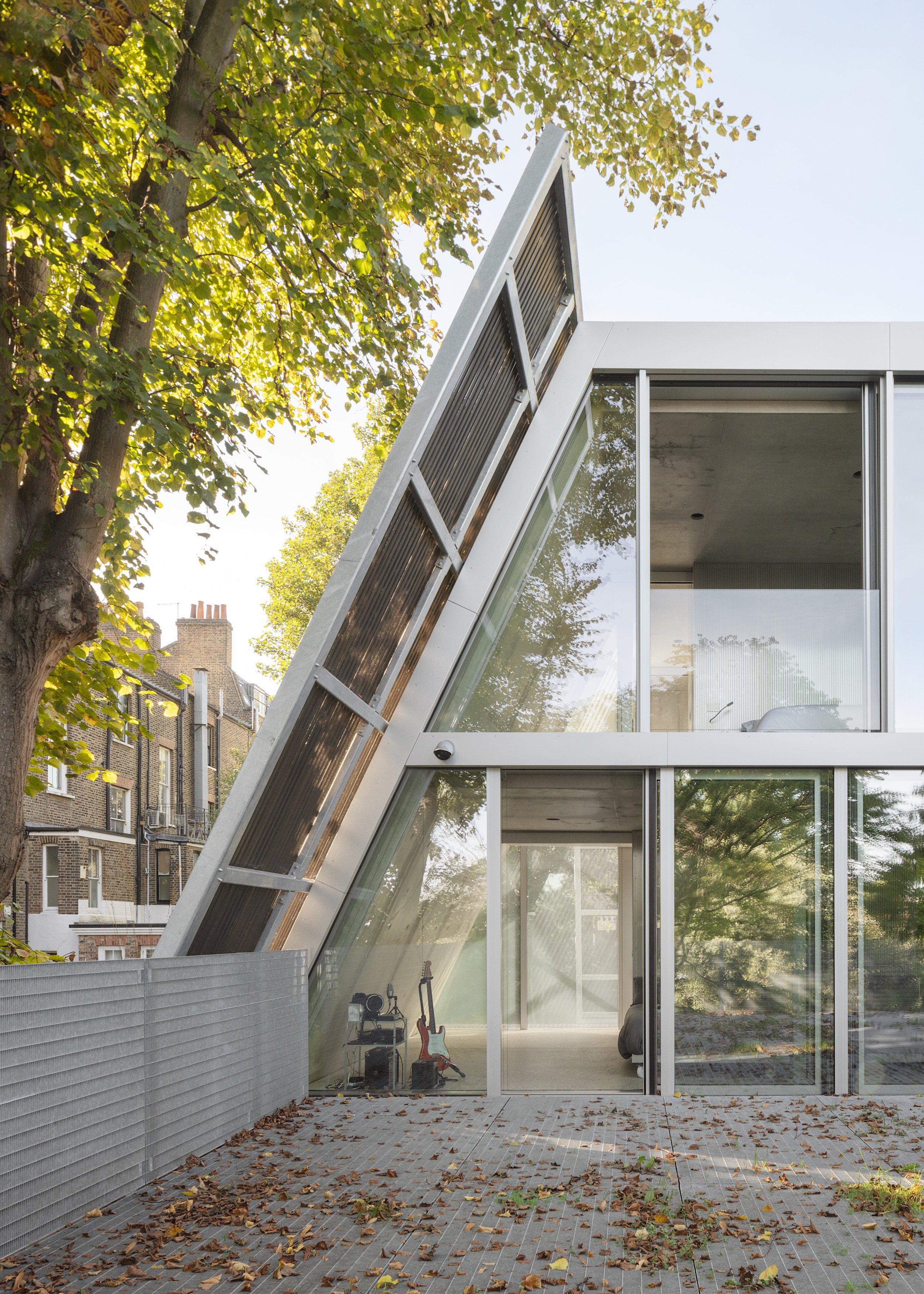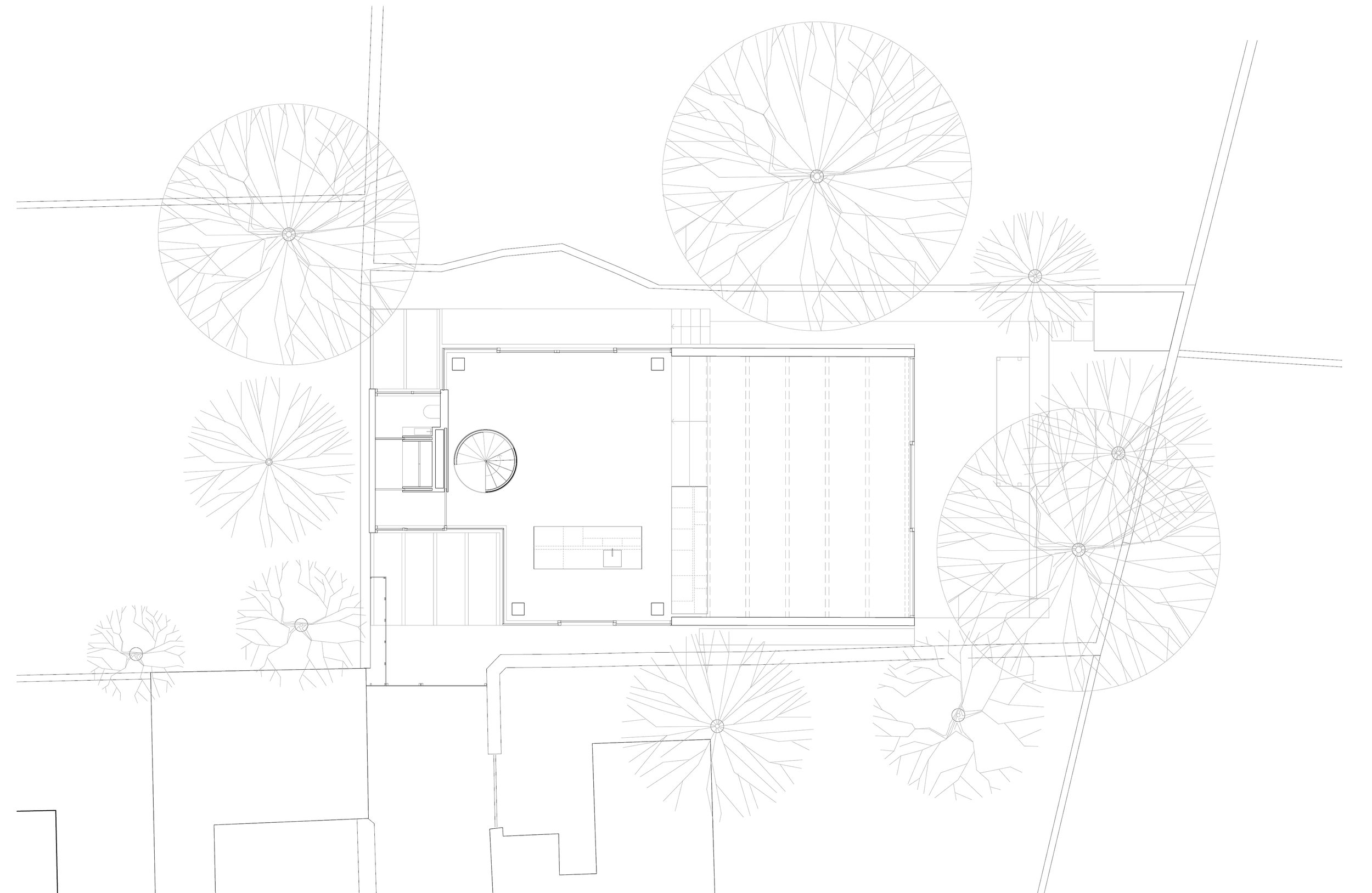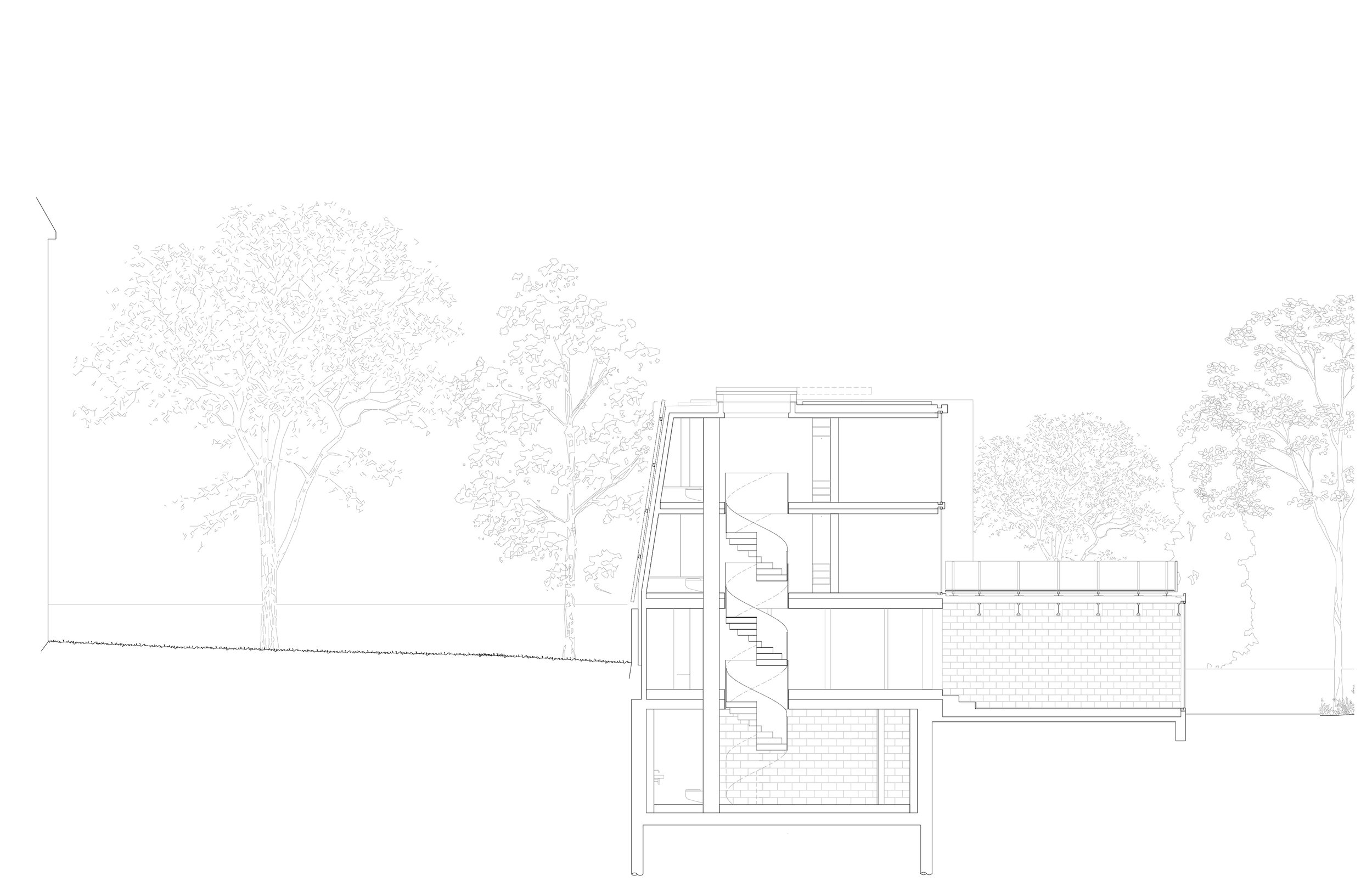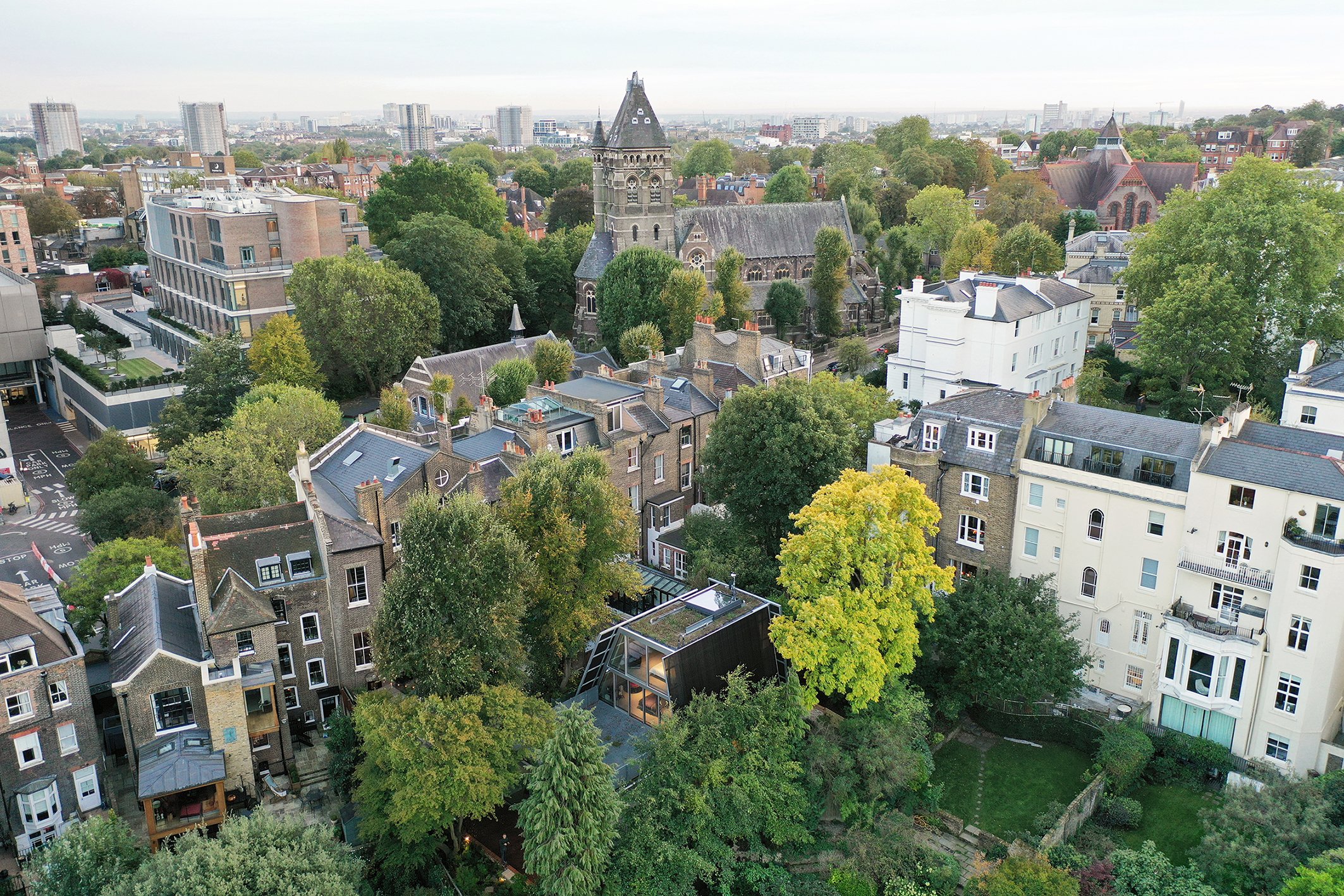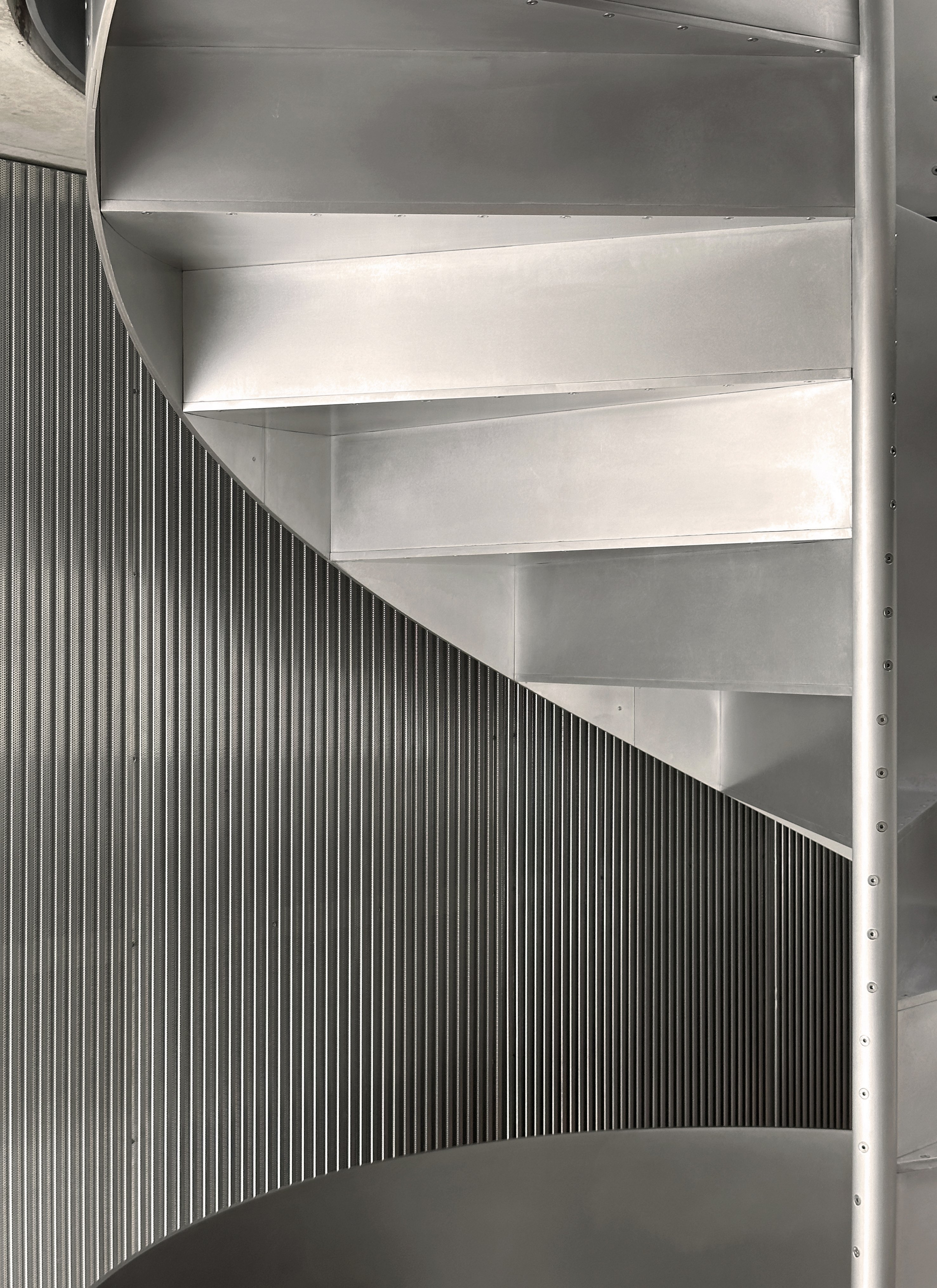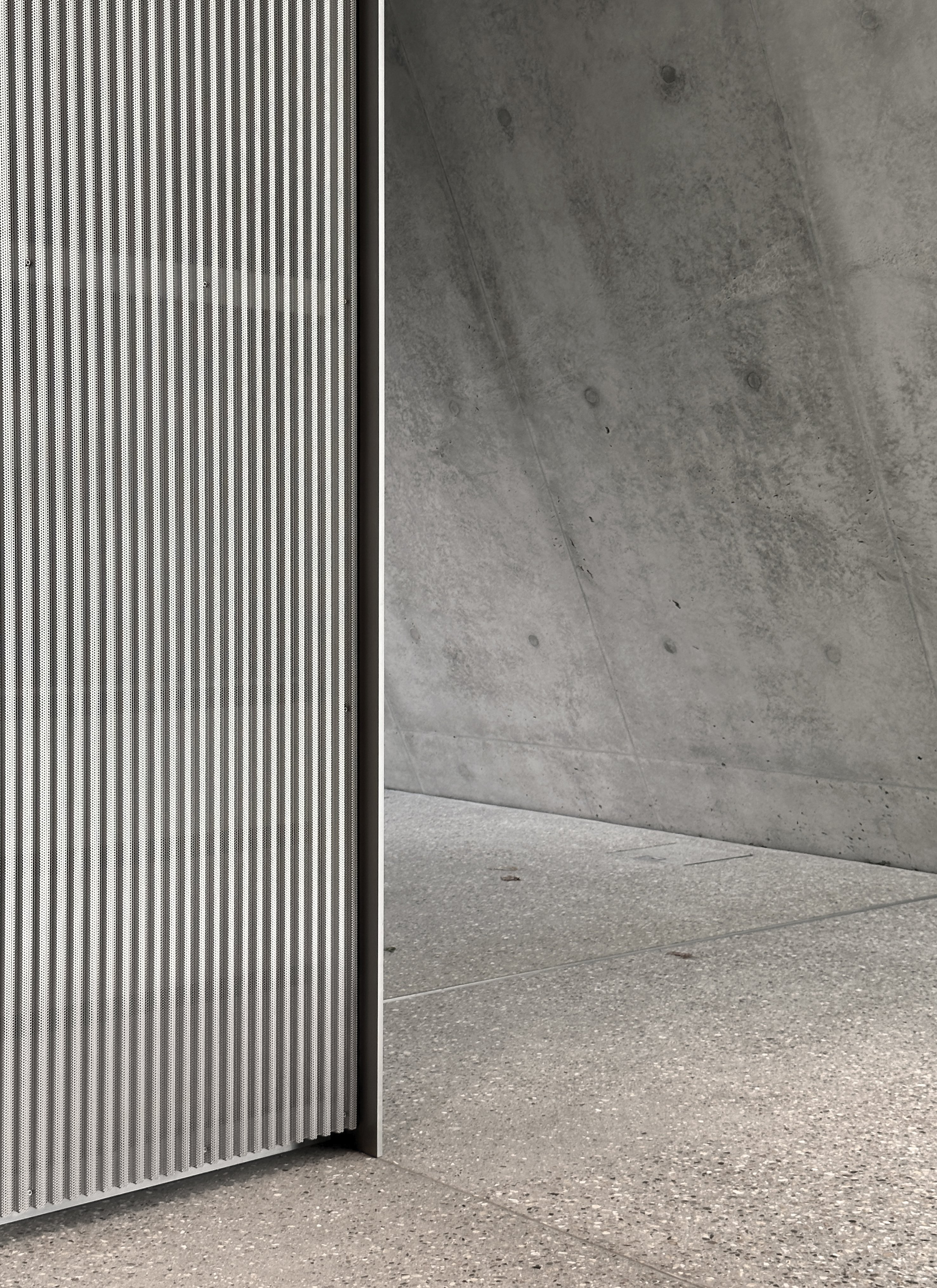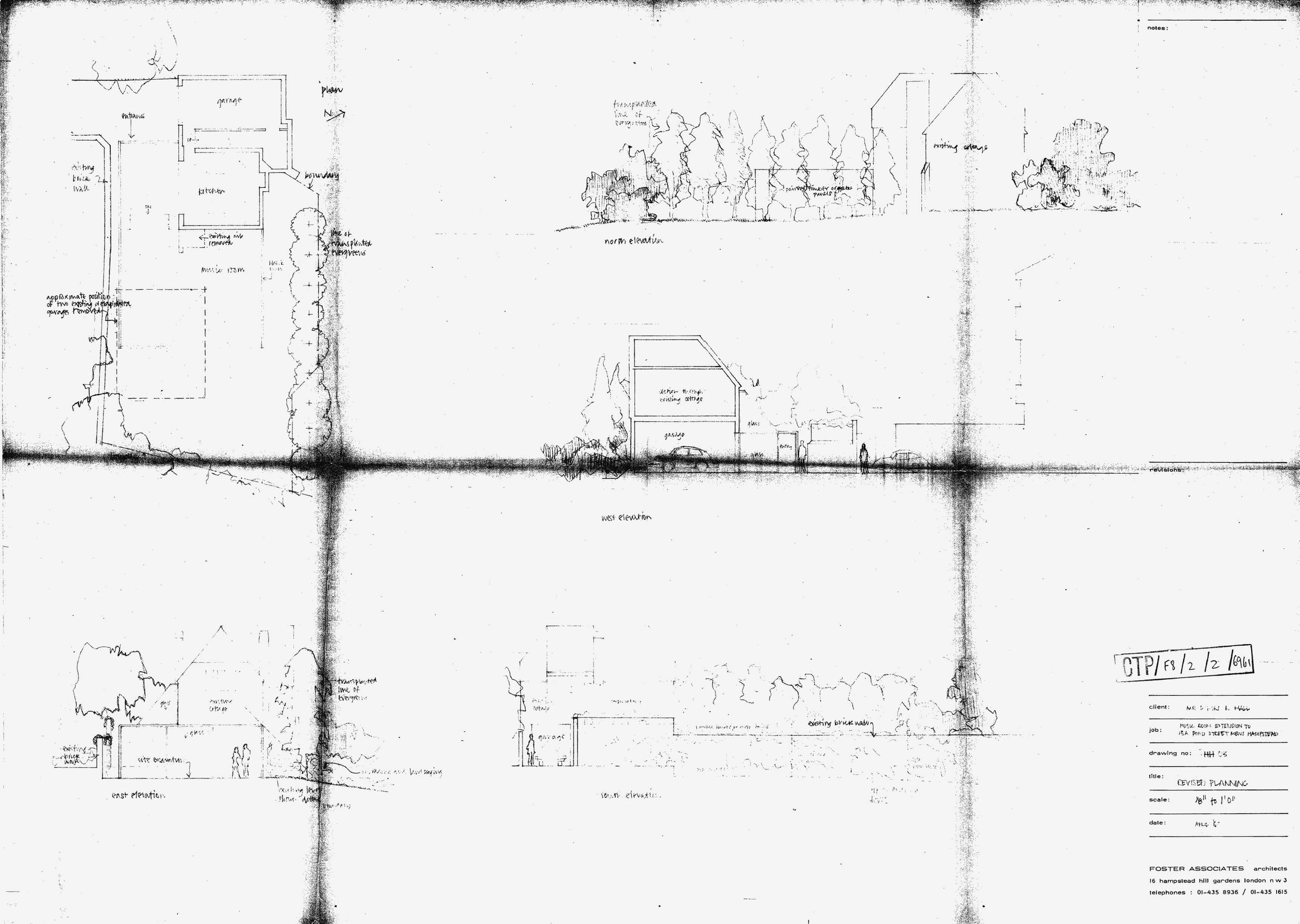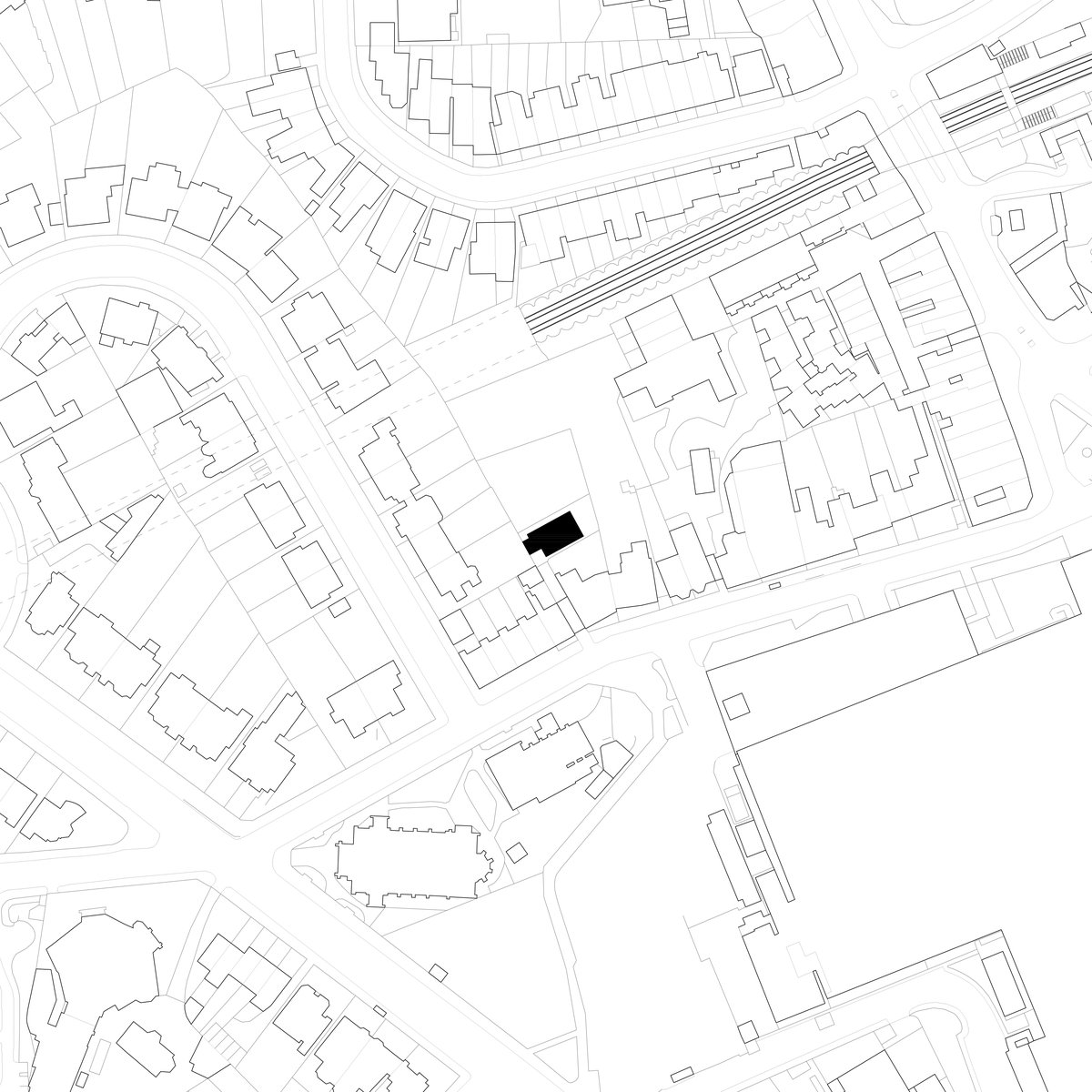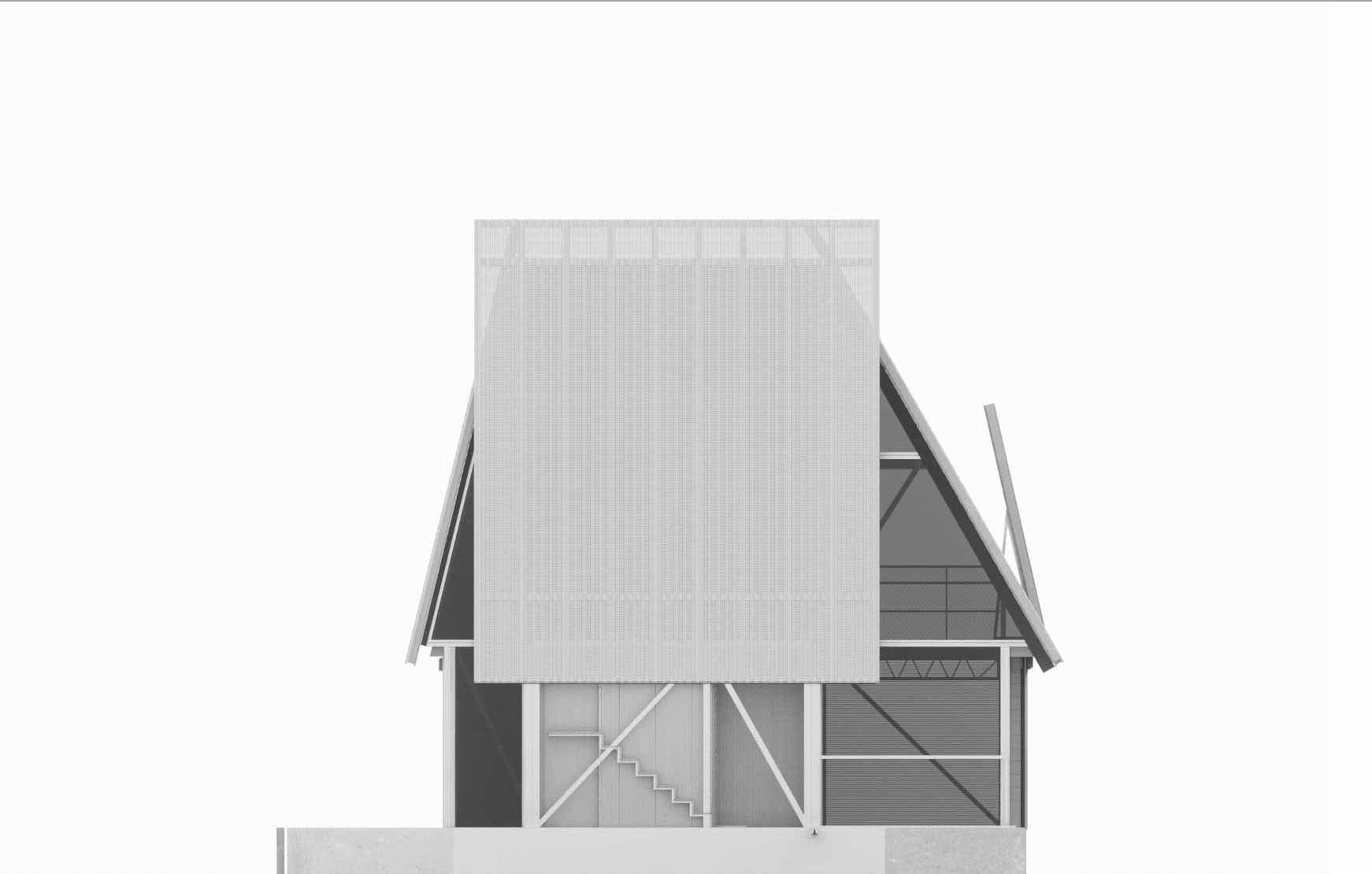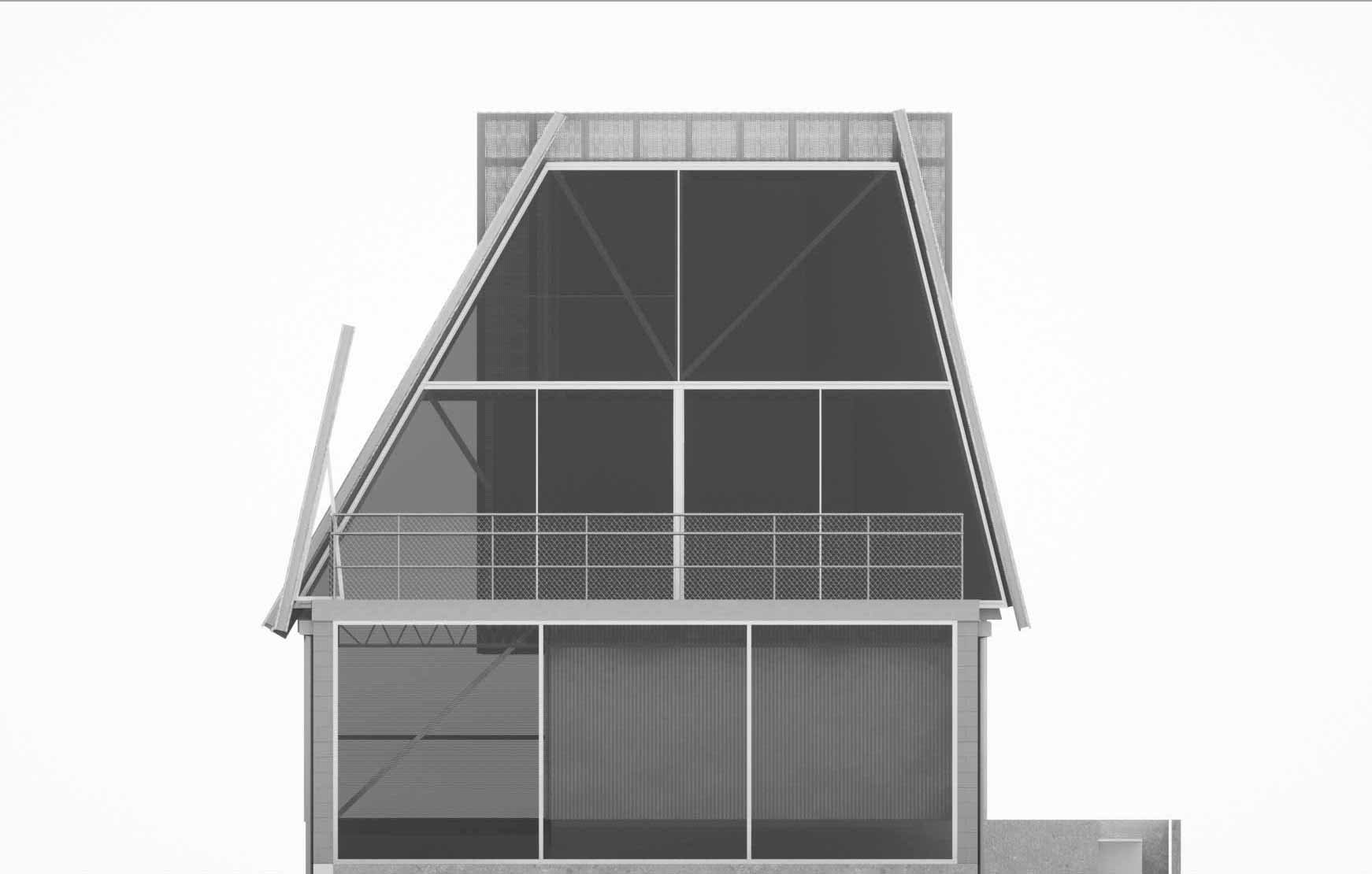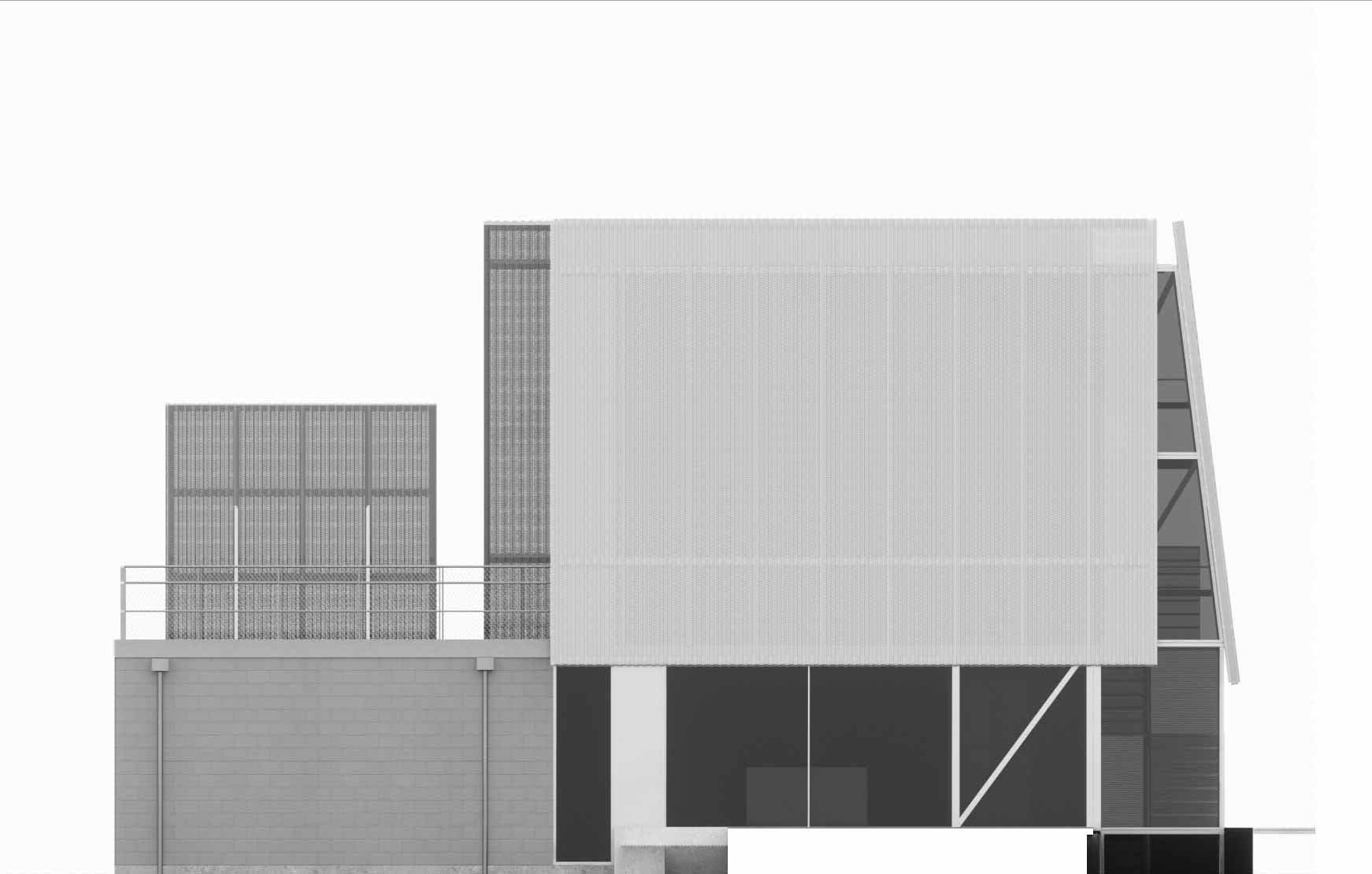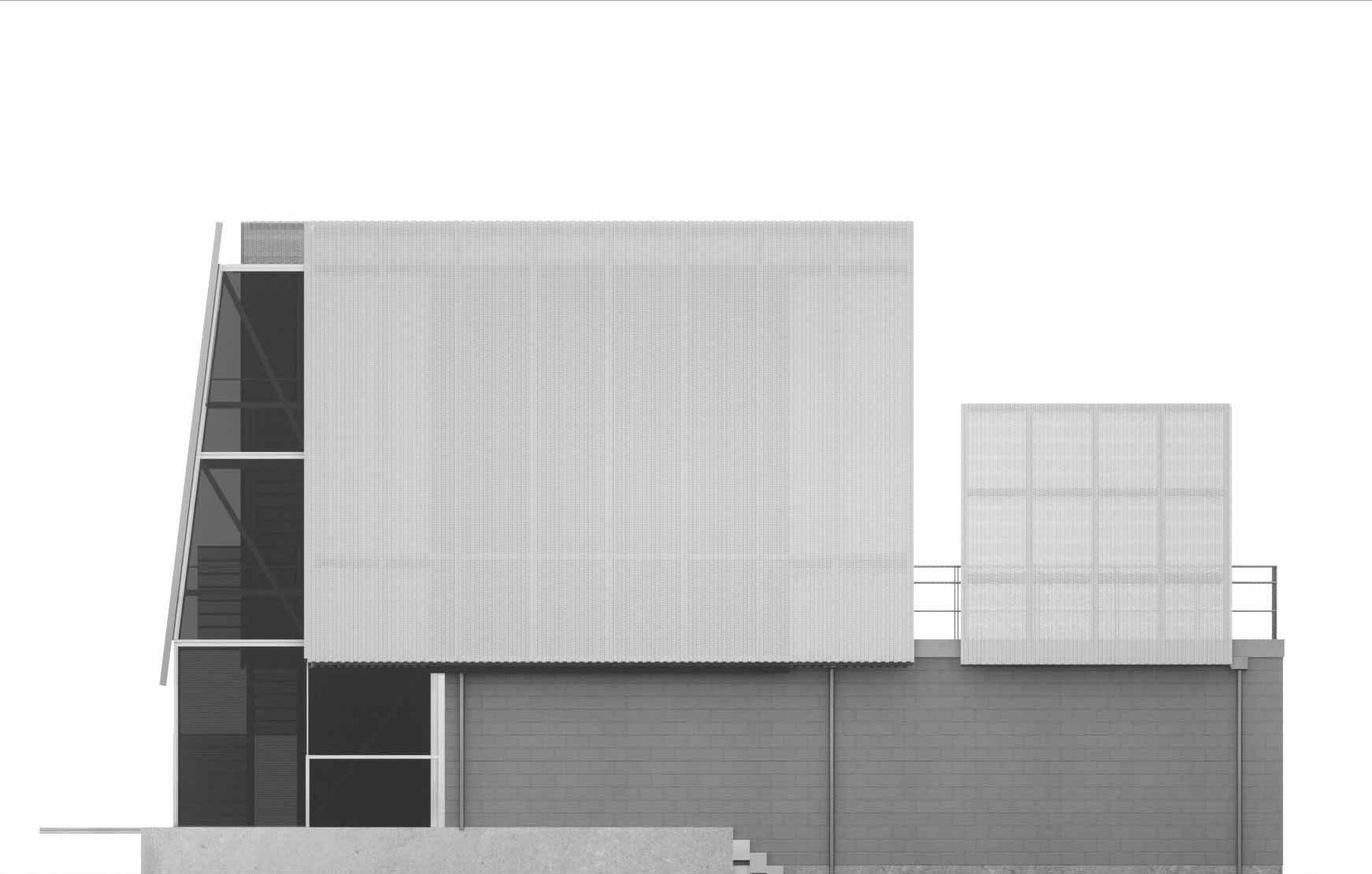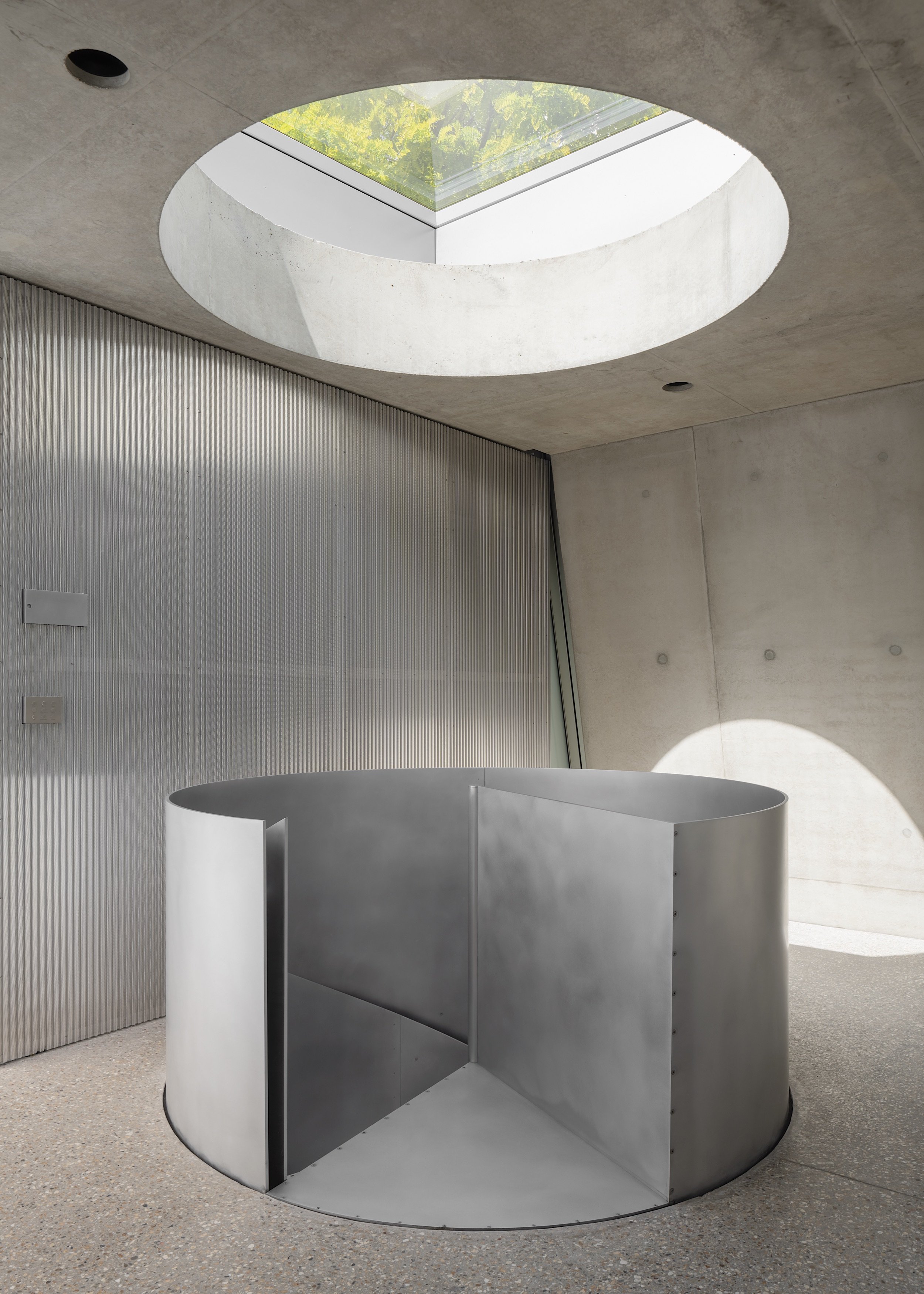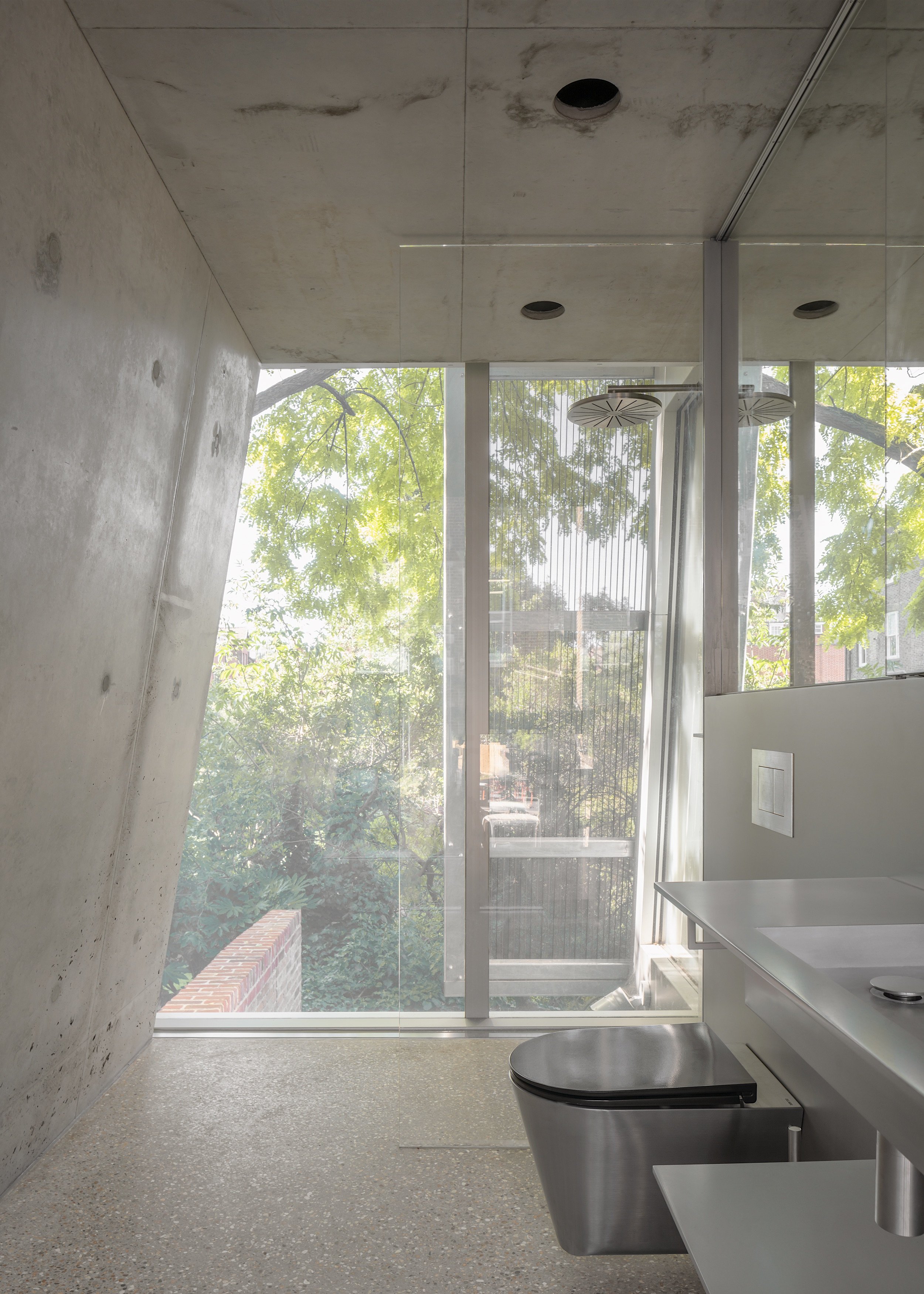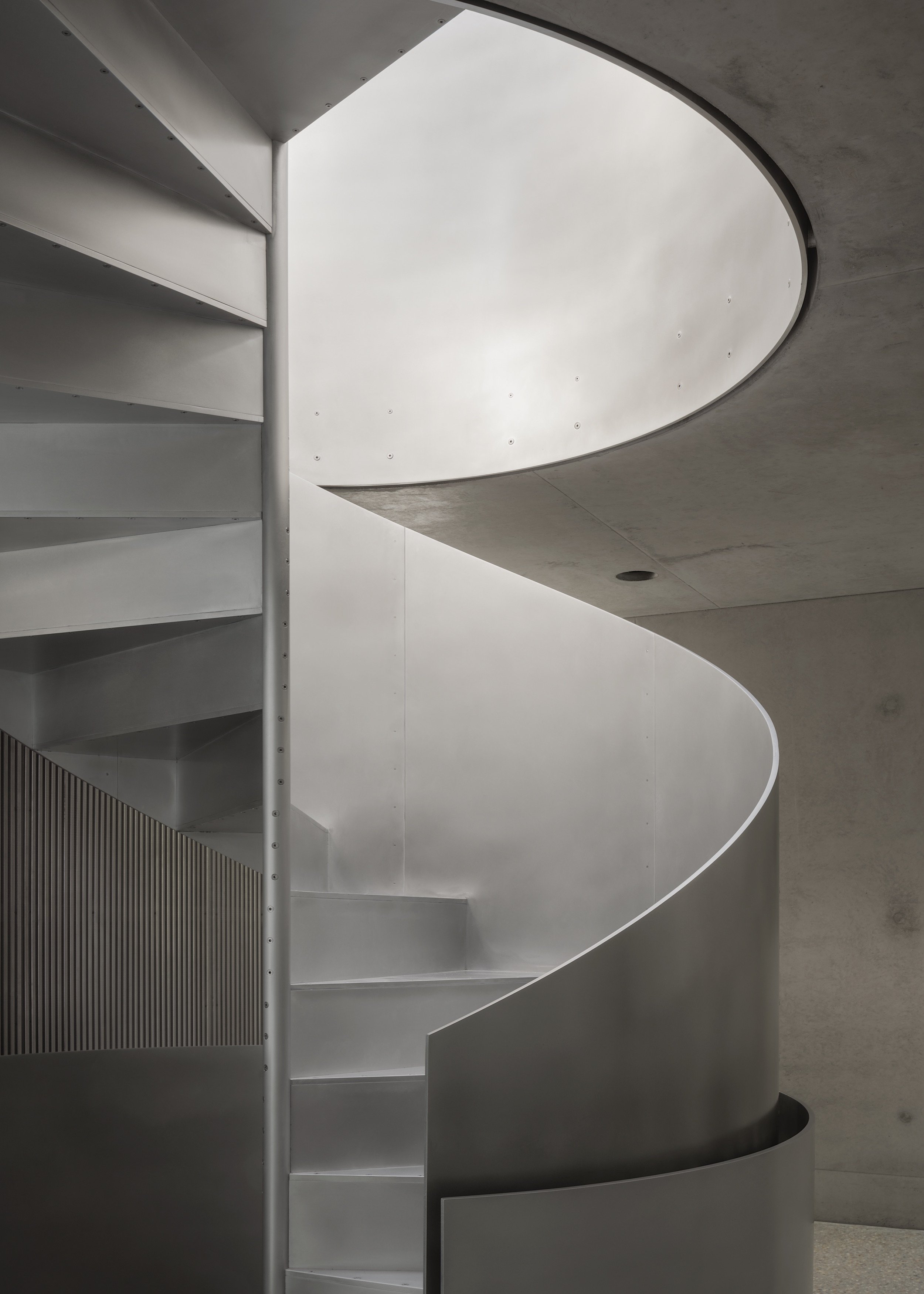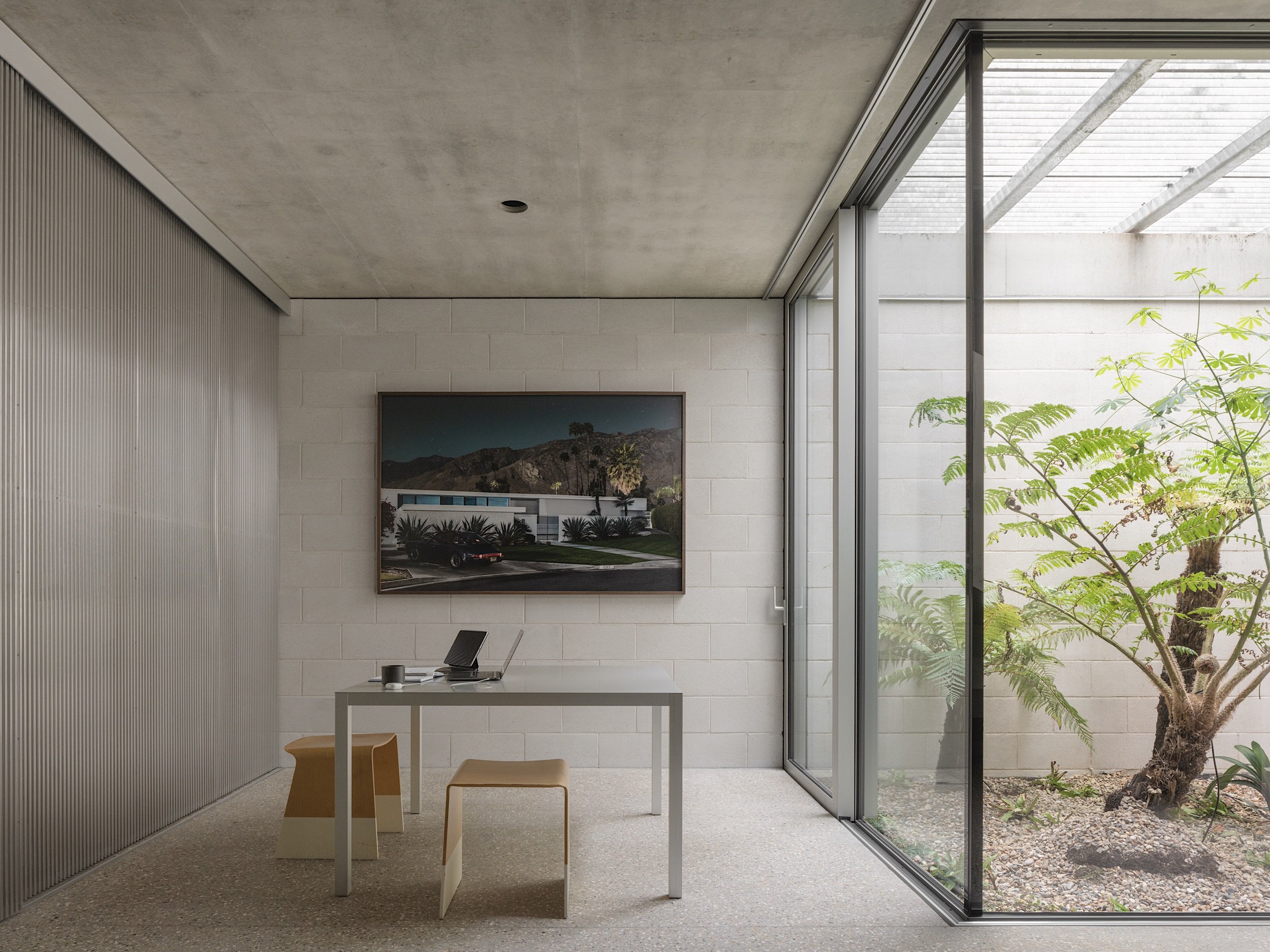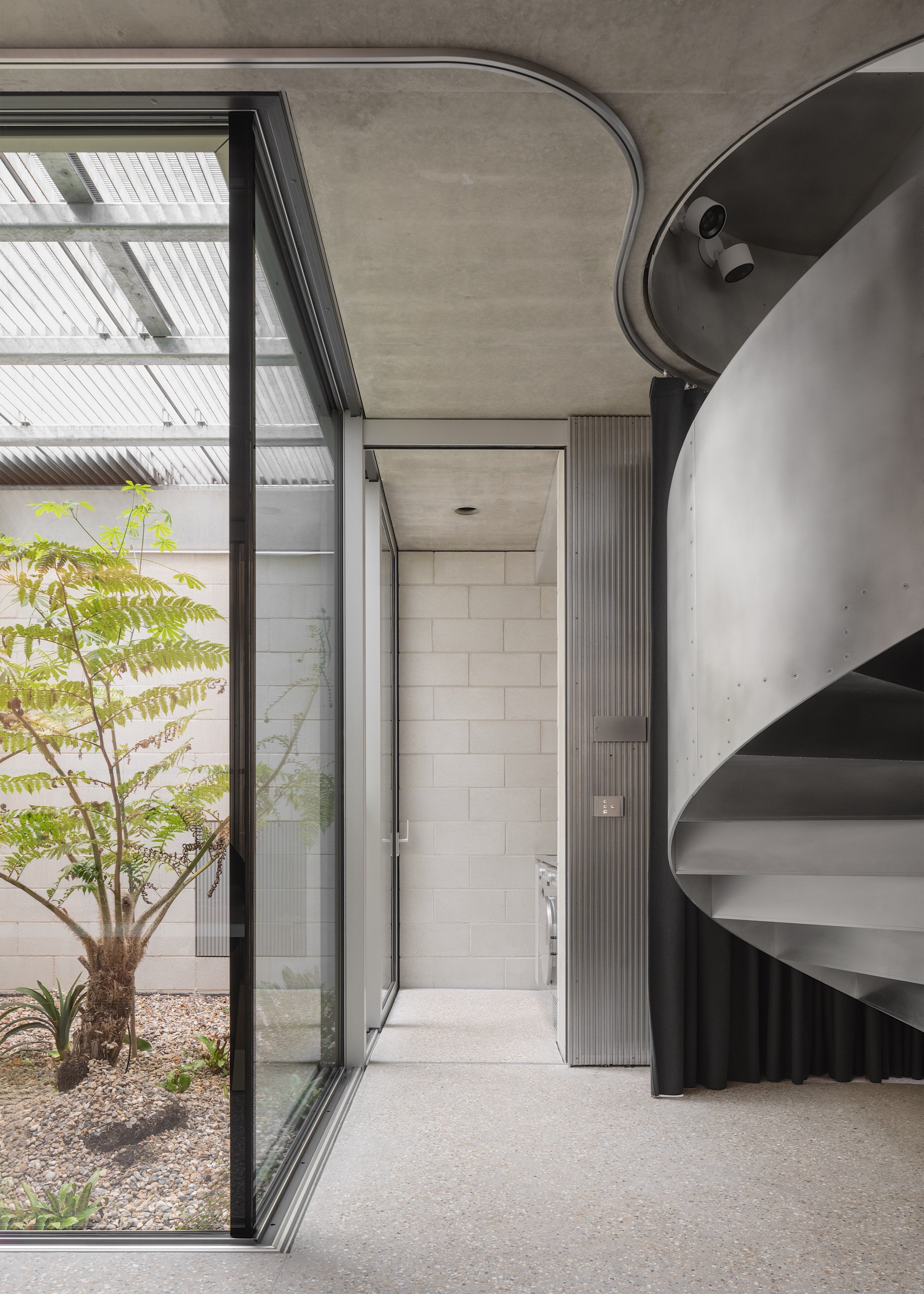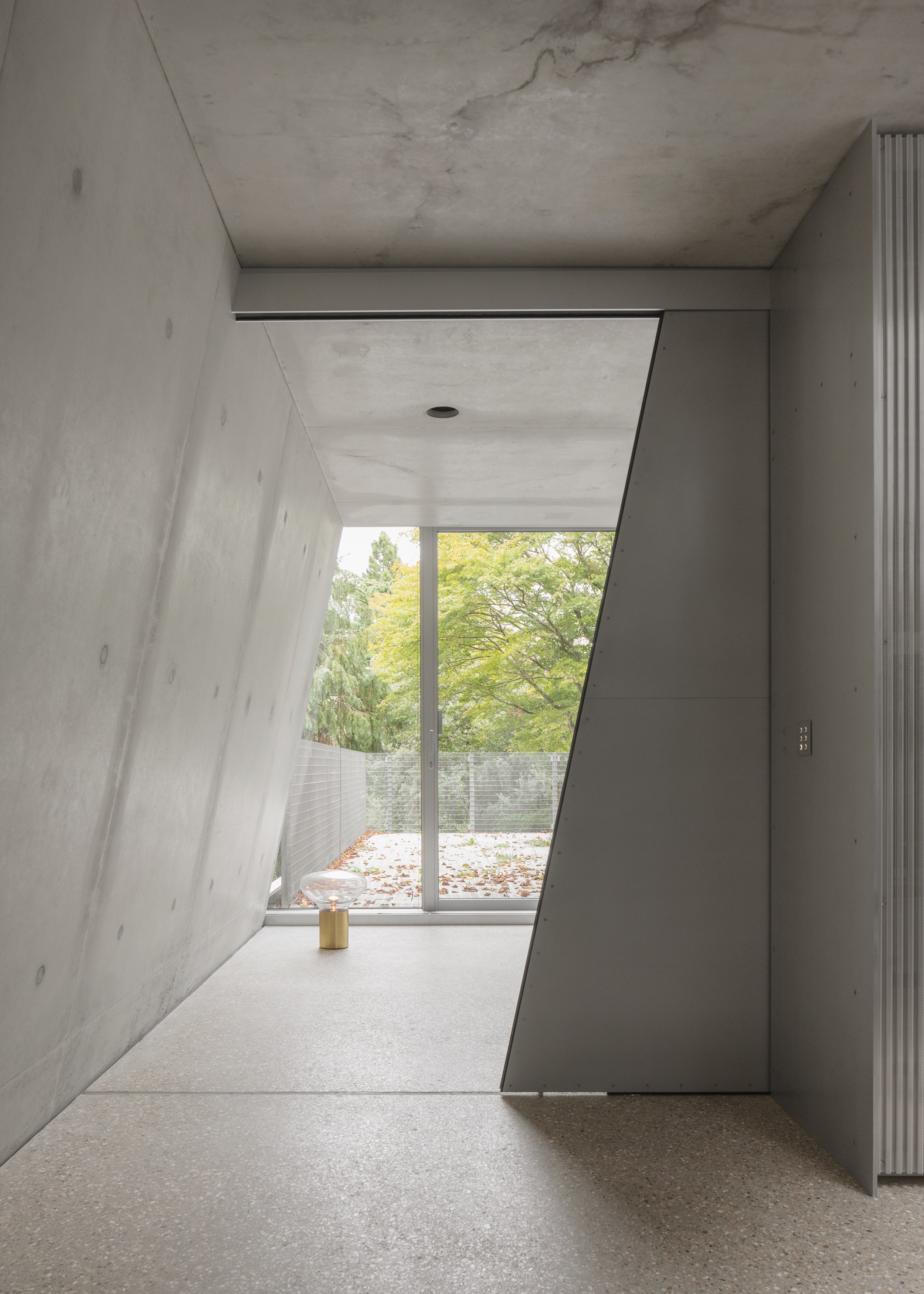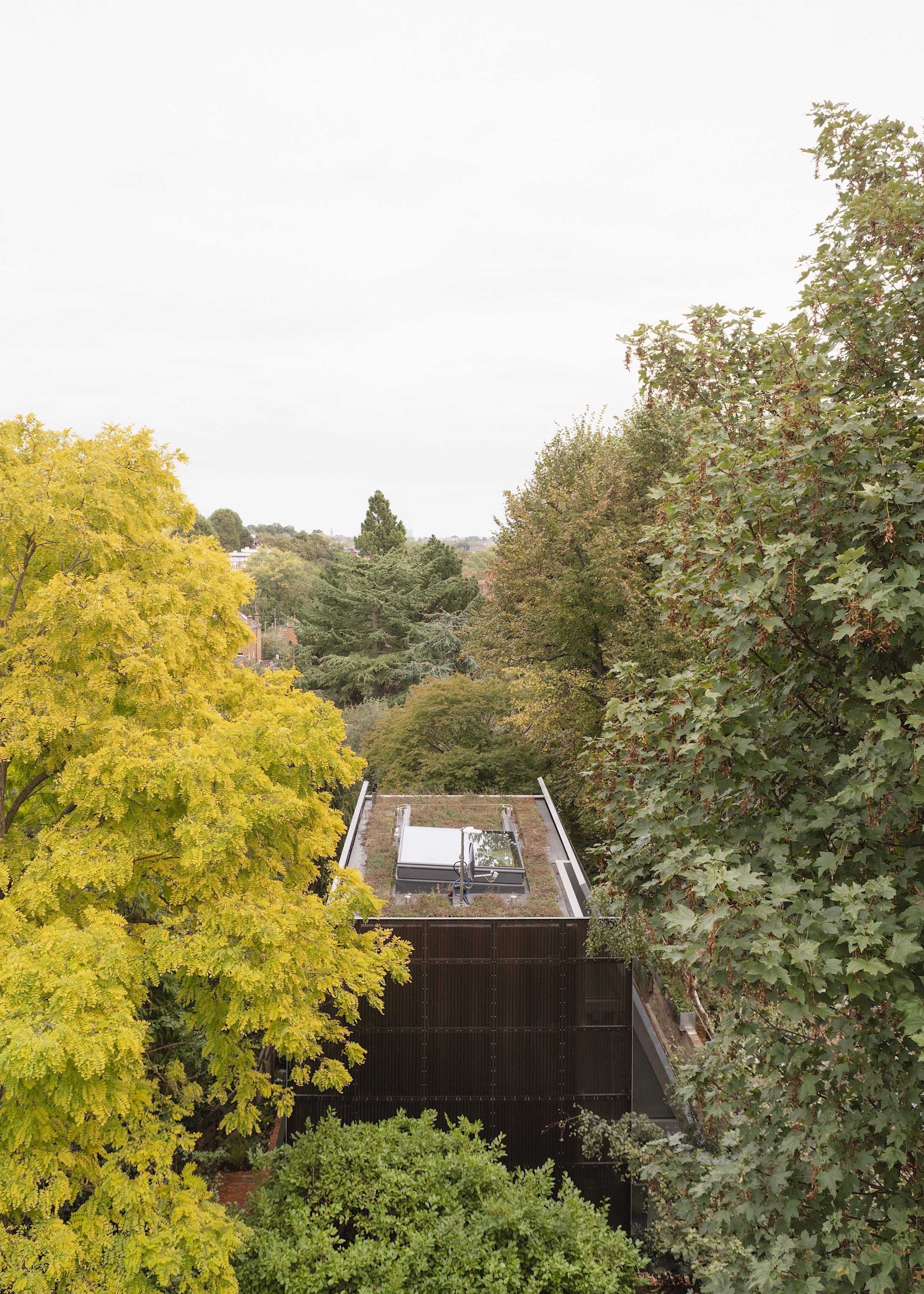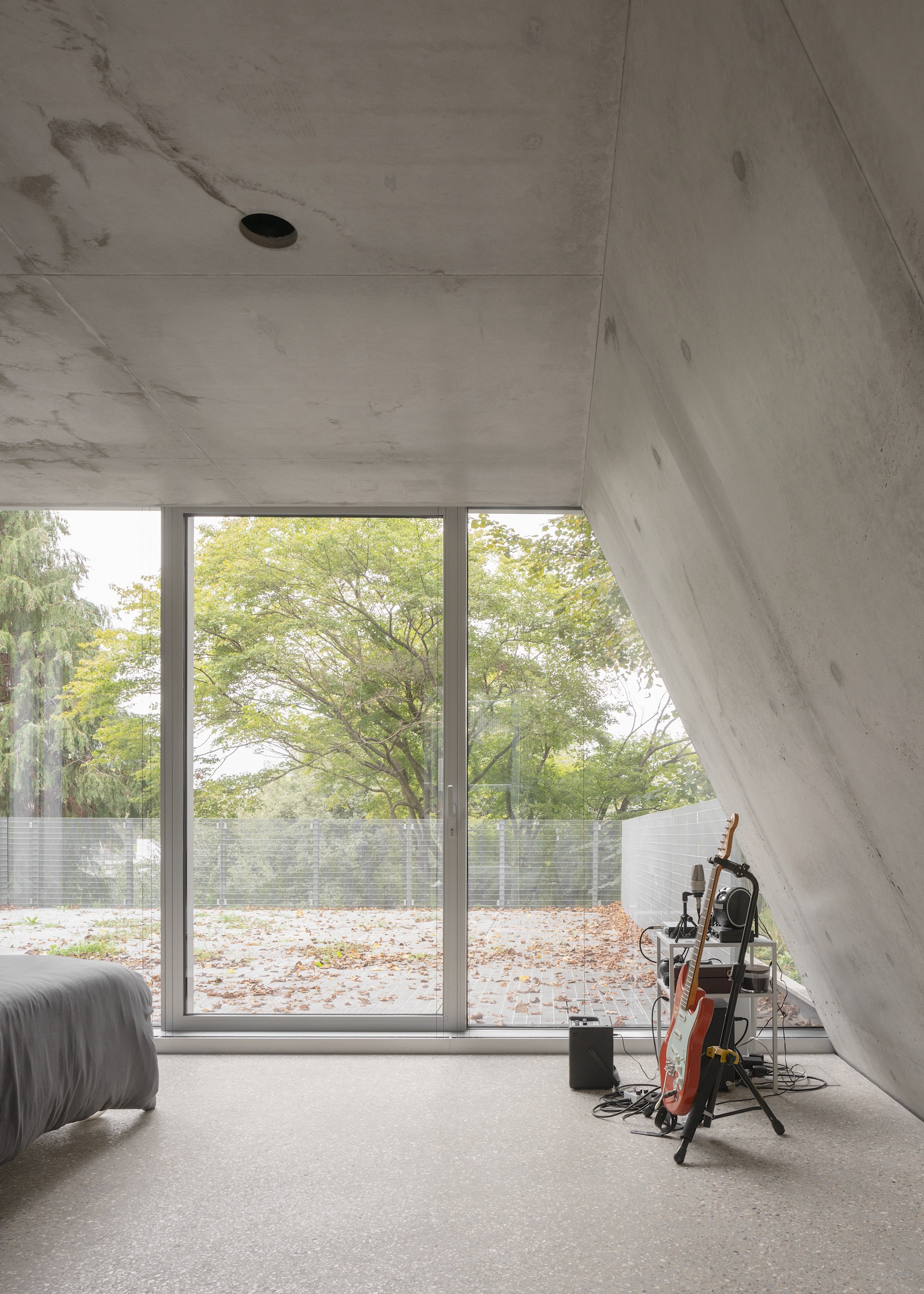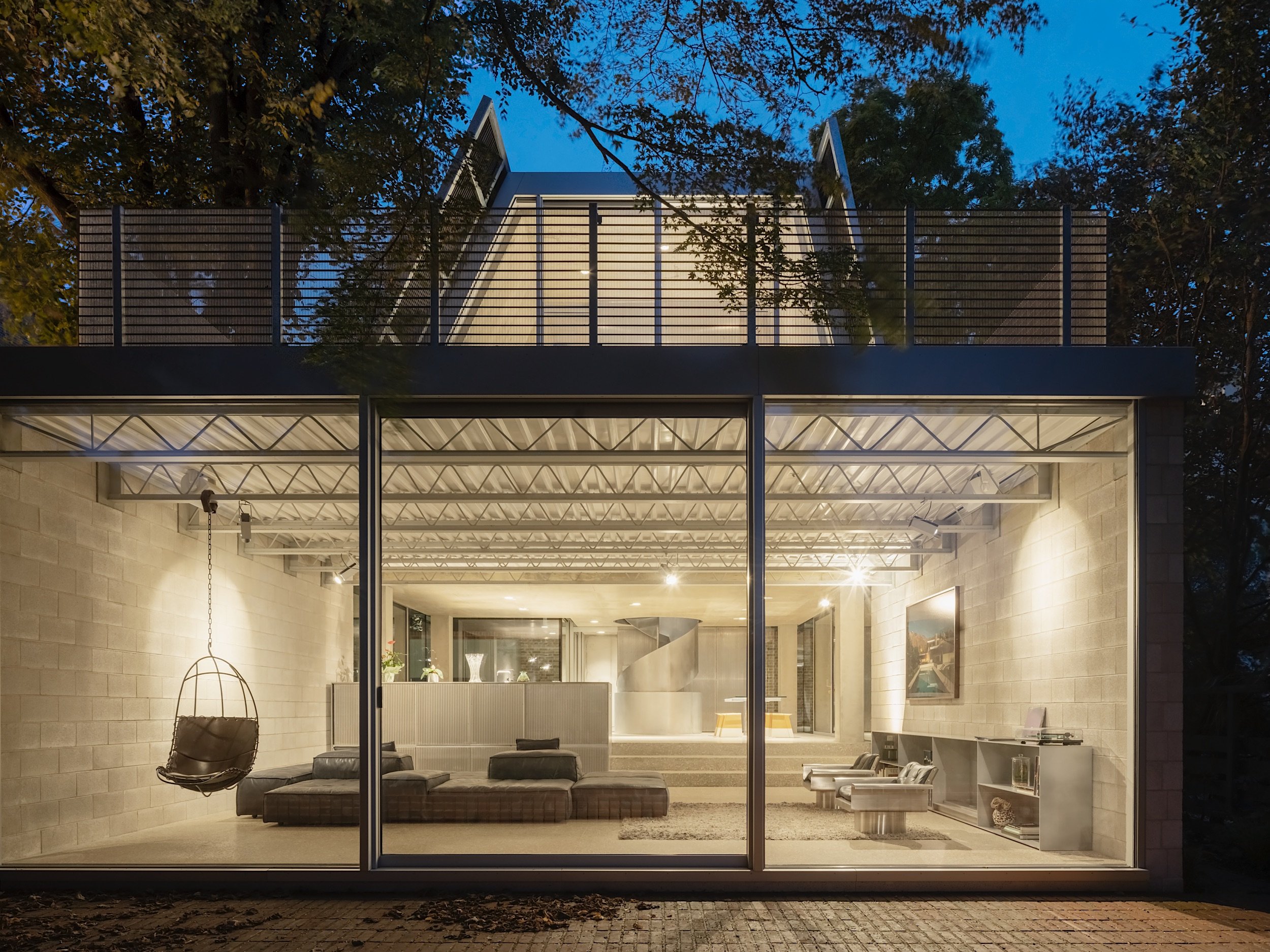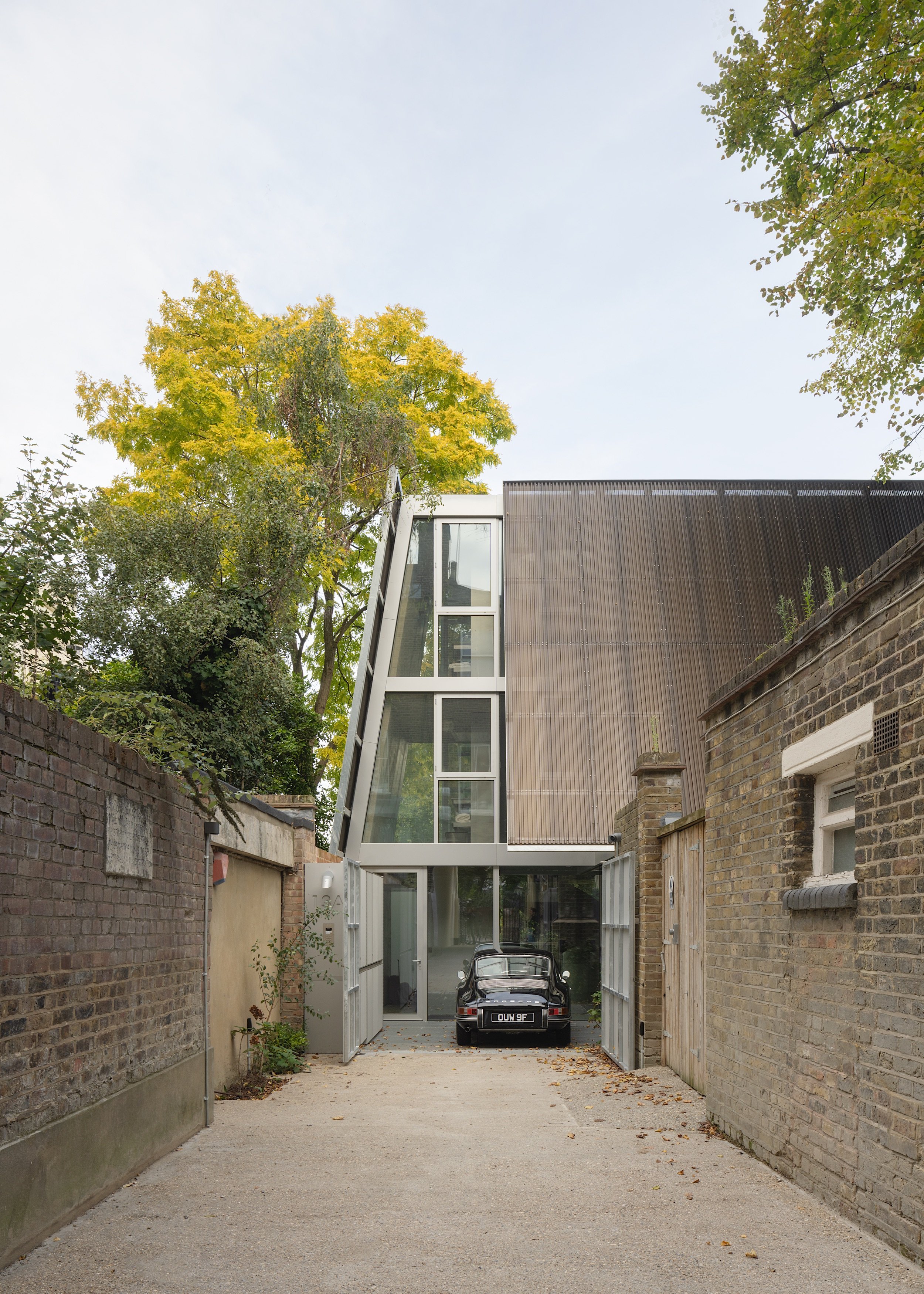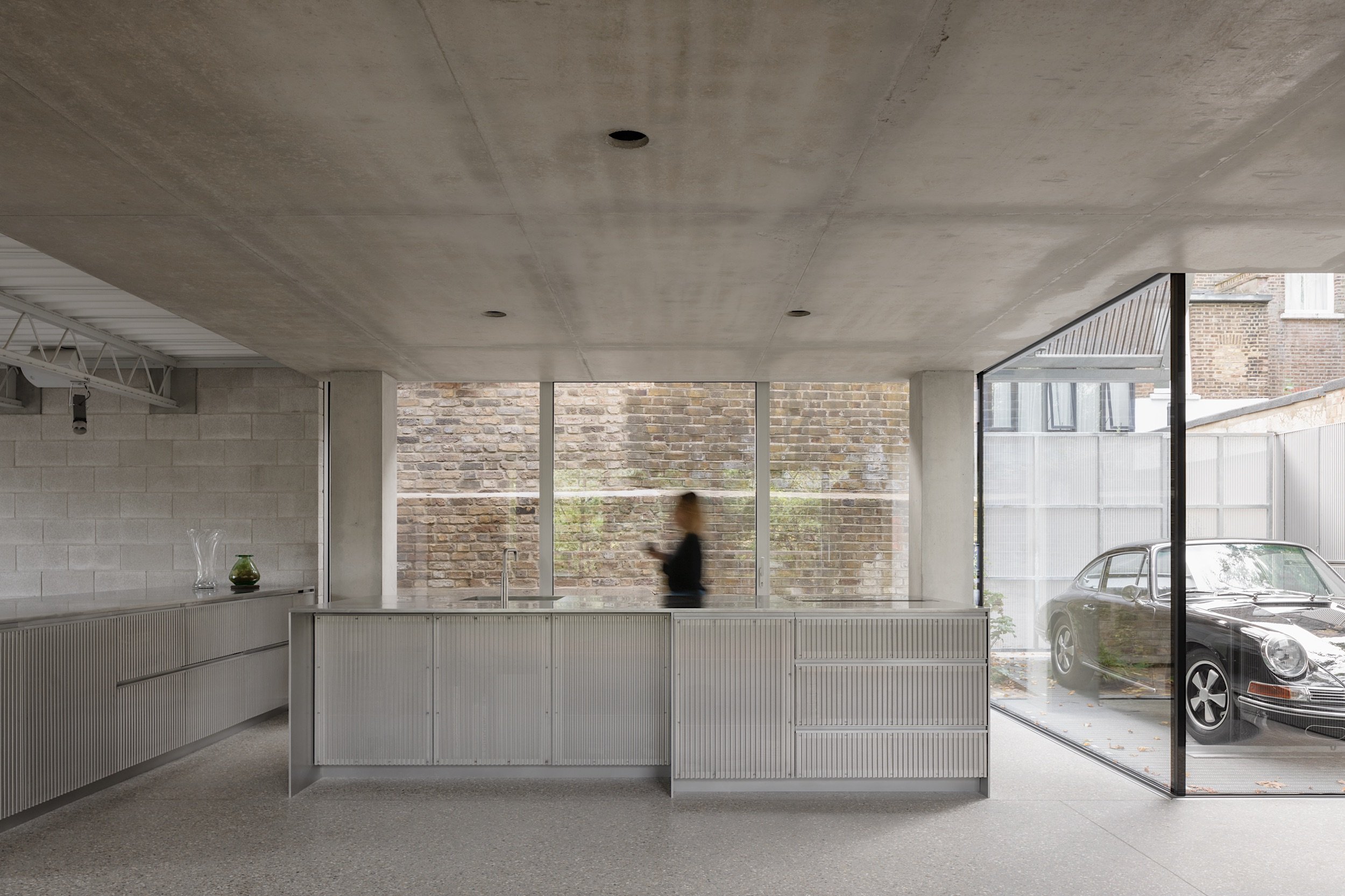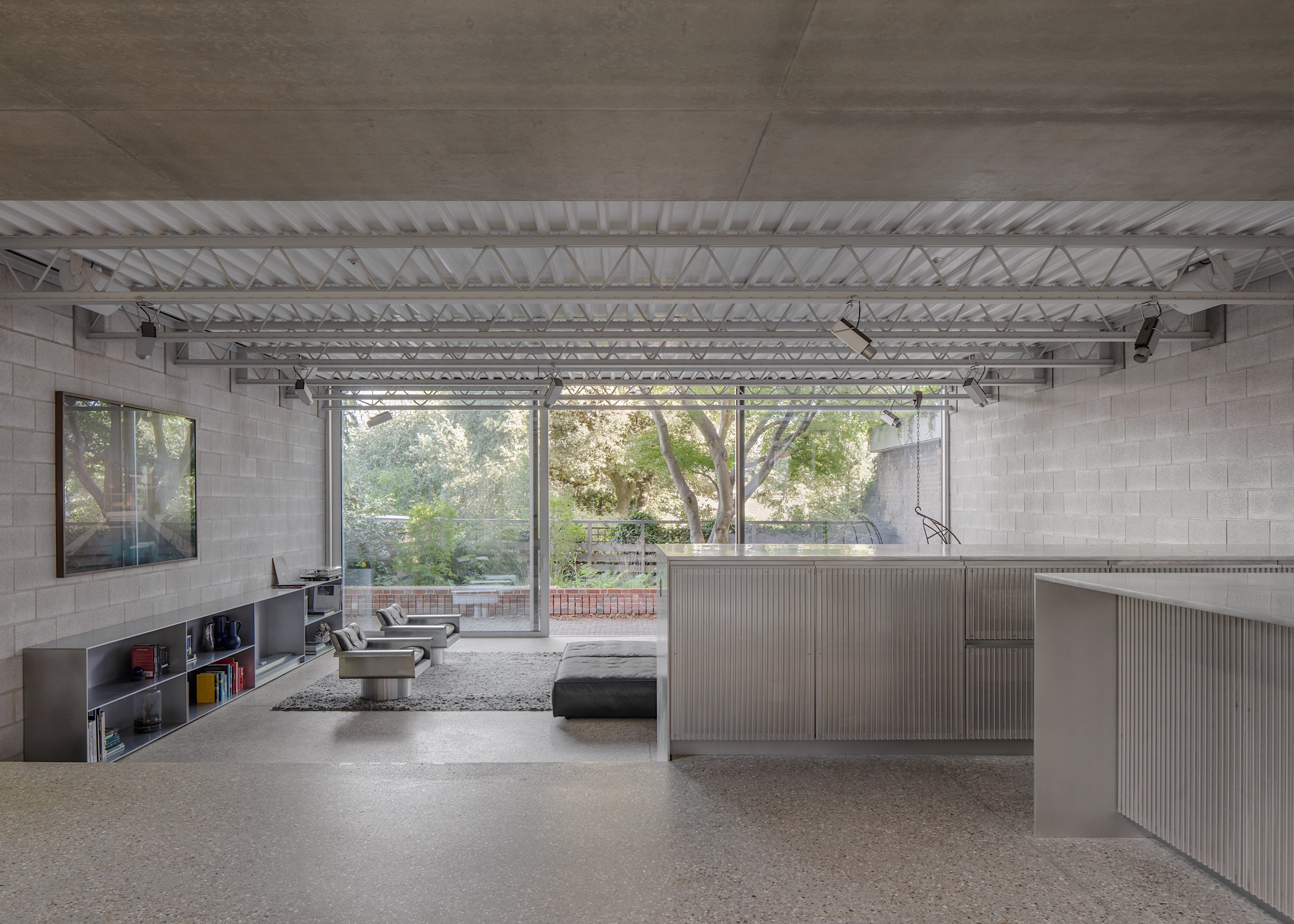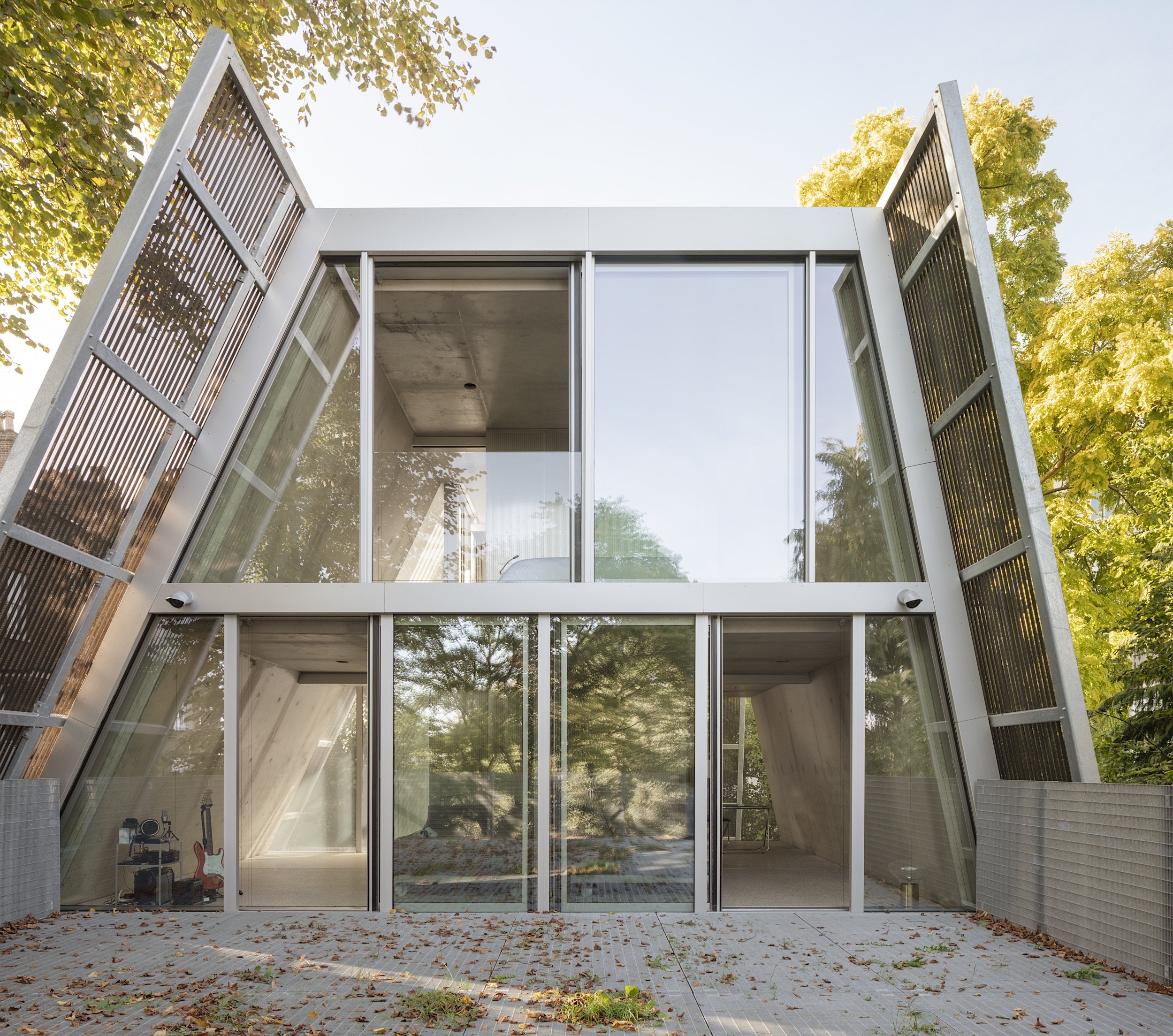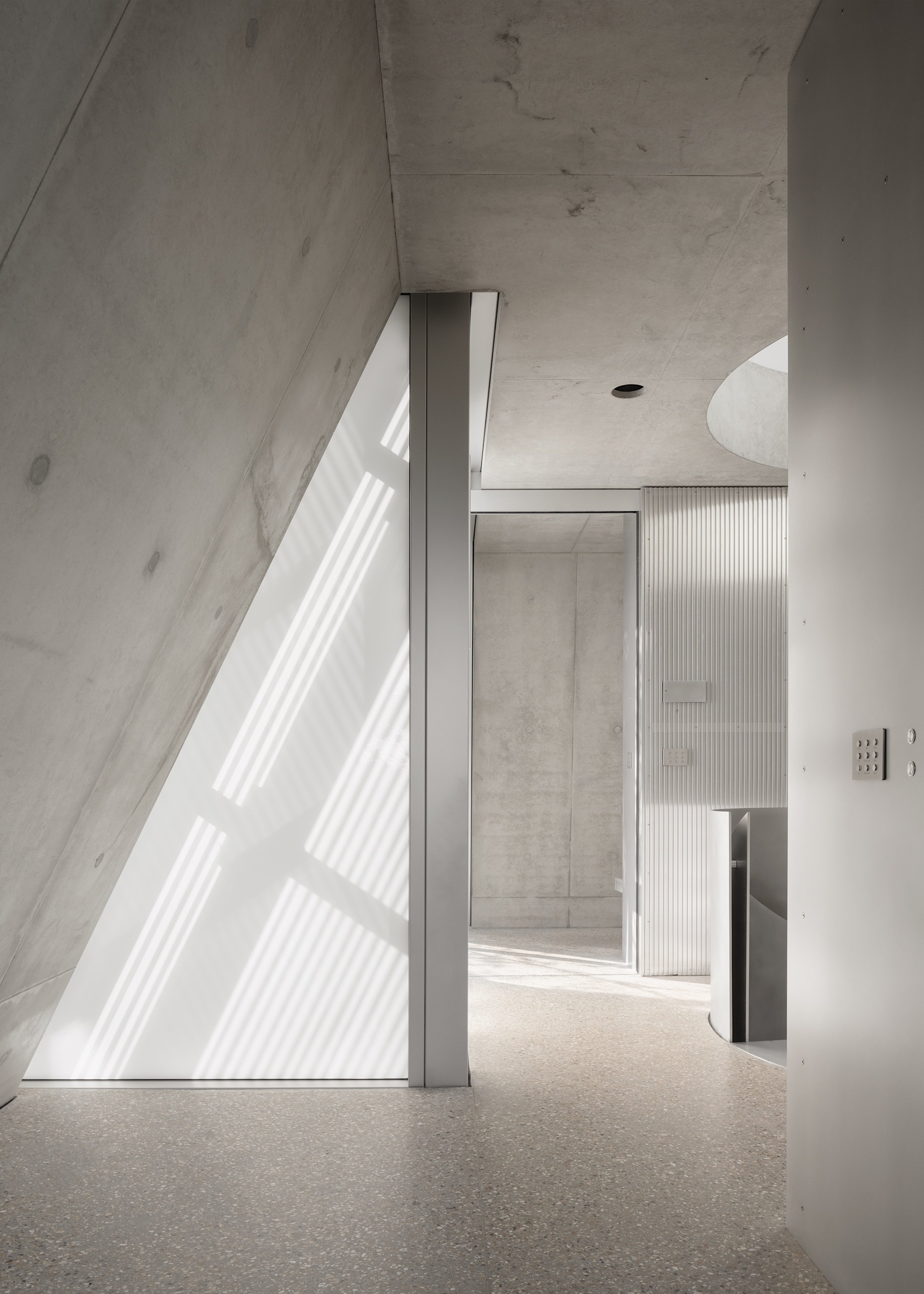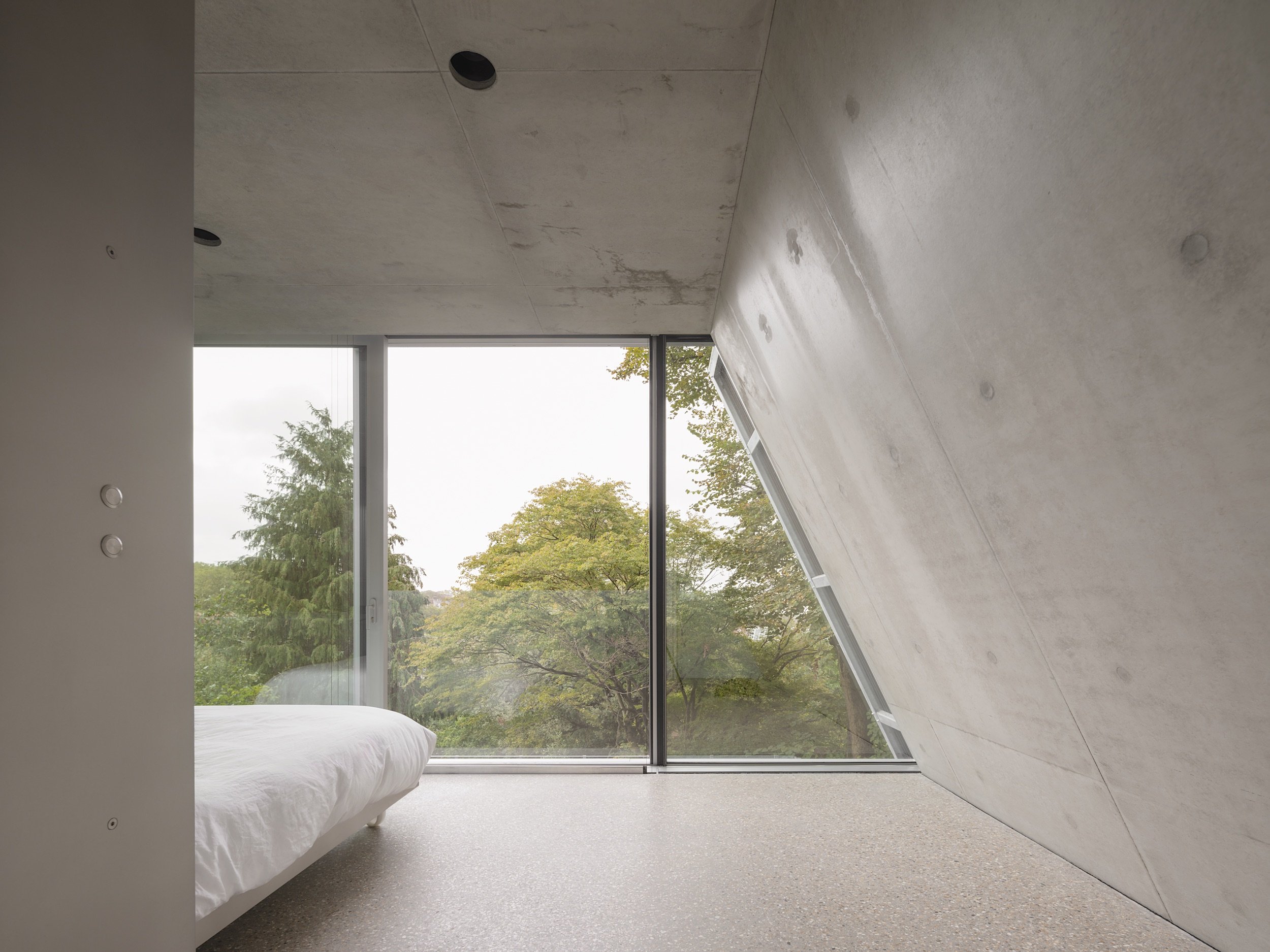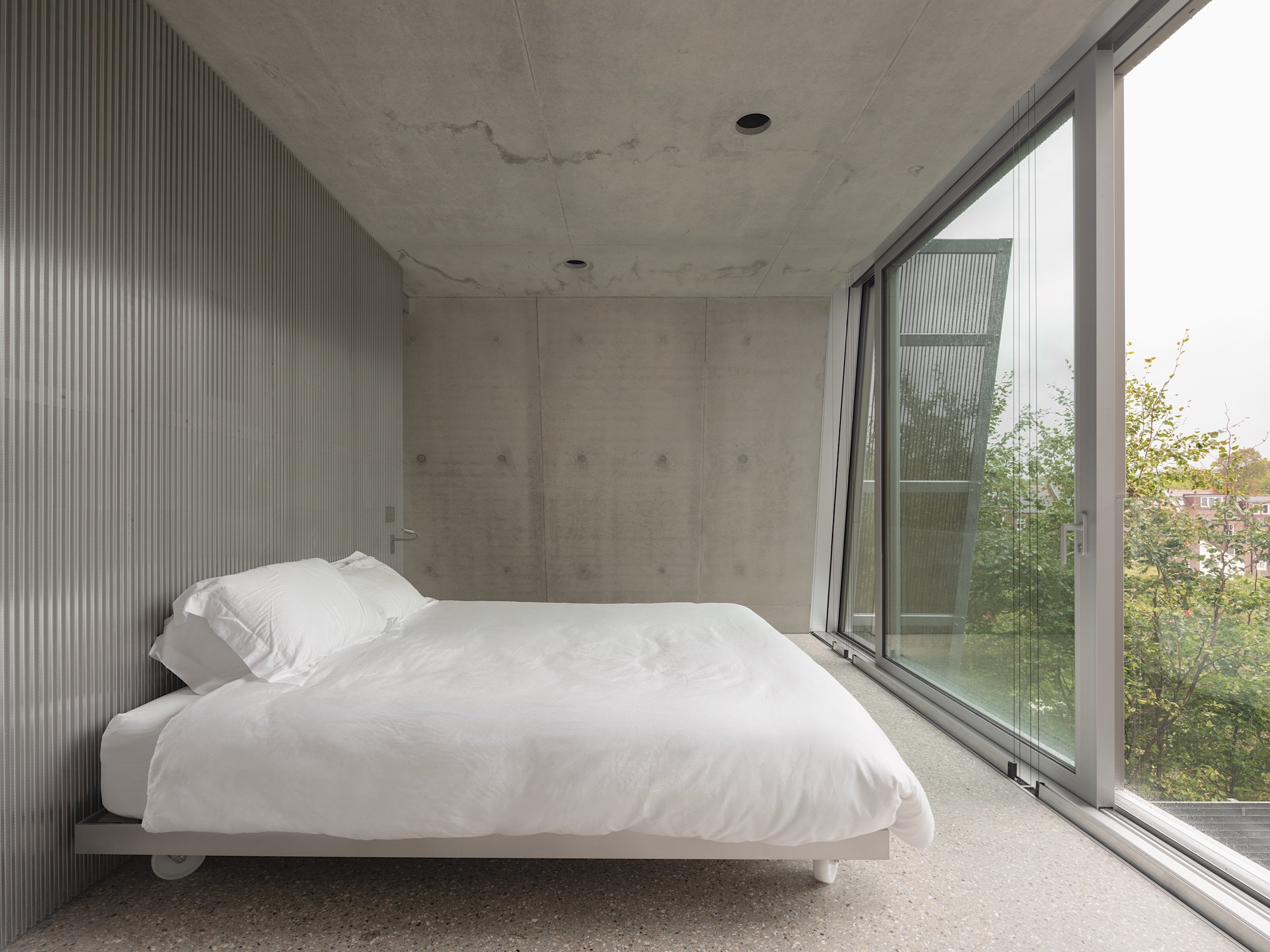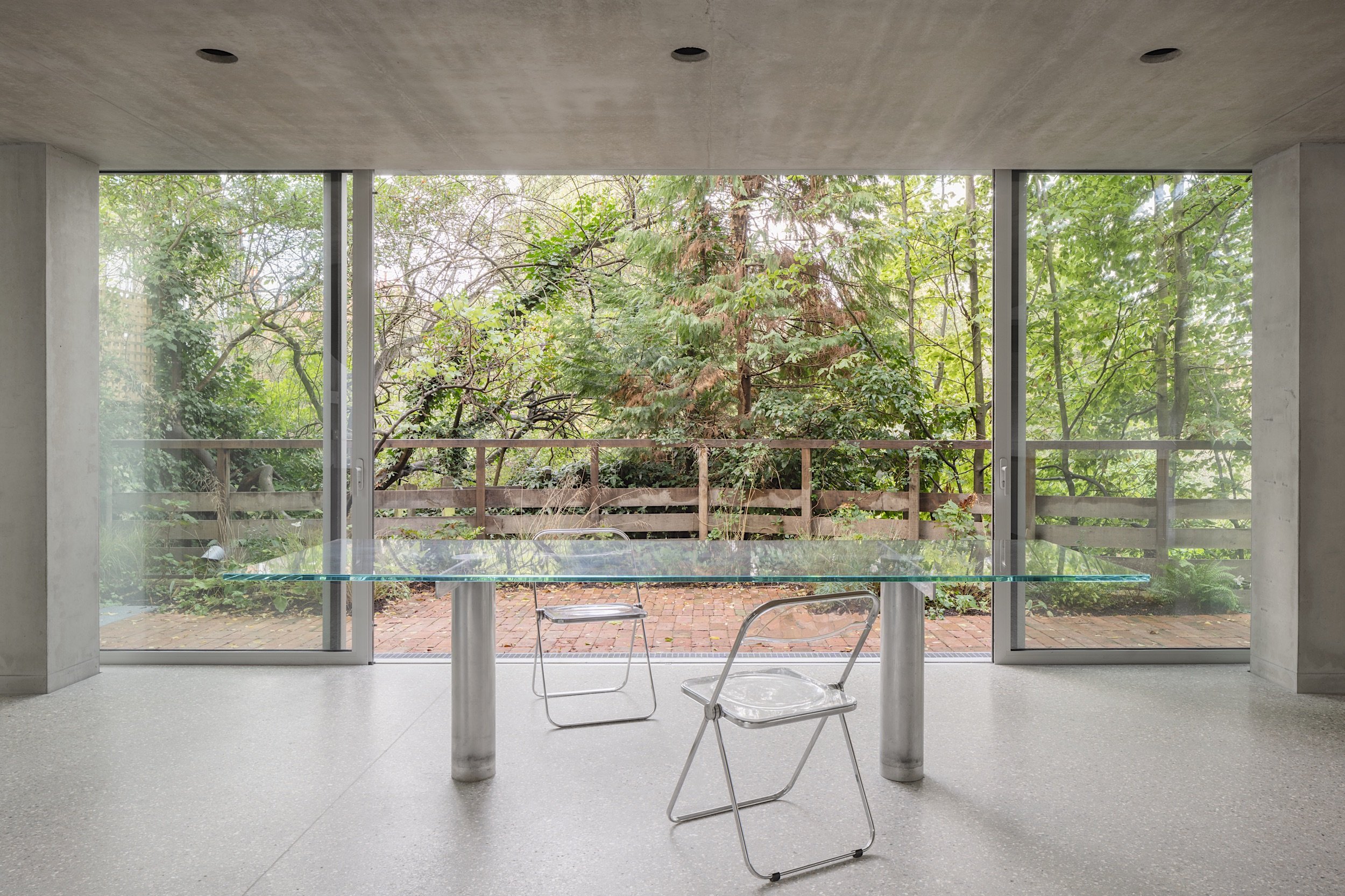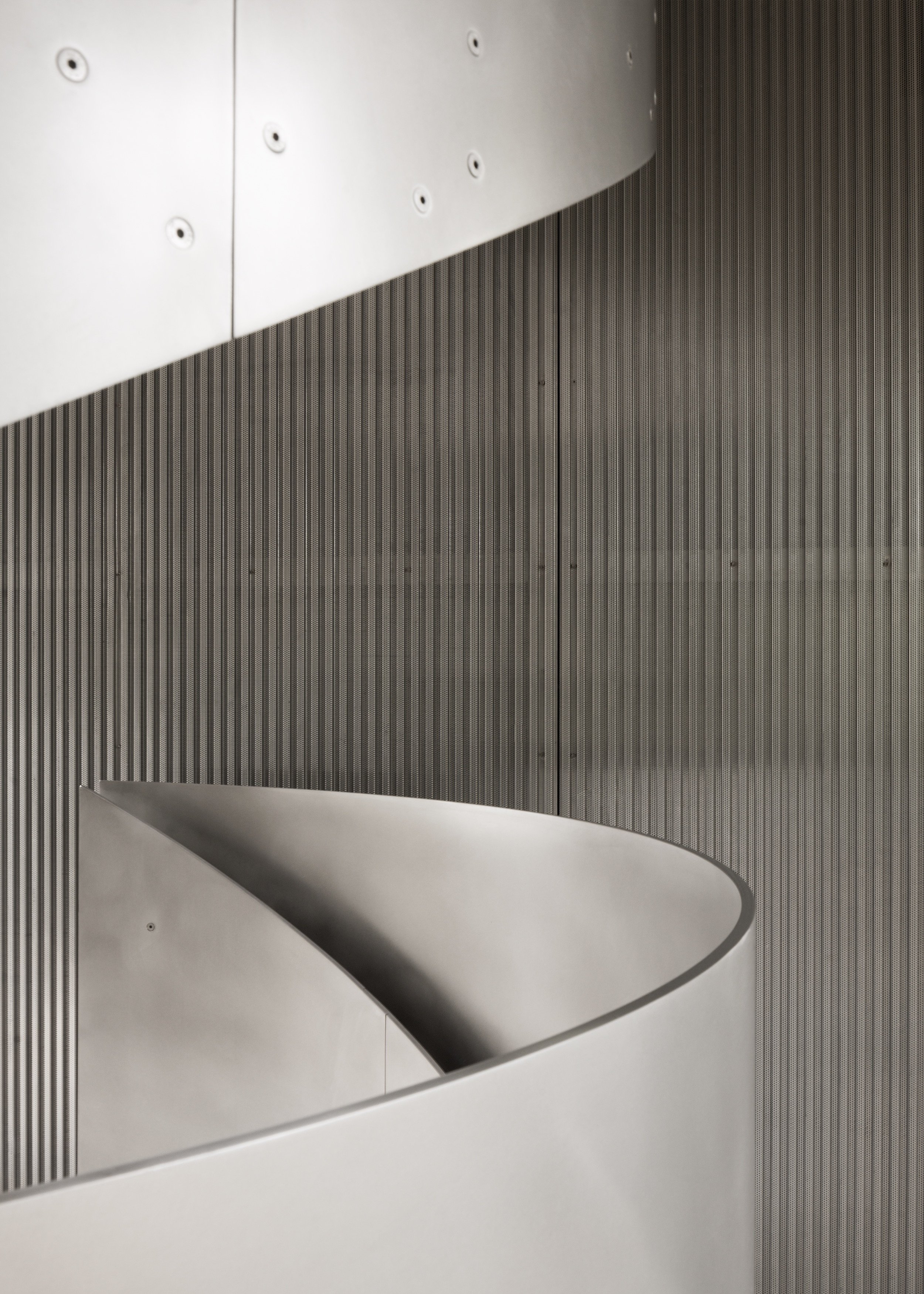ARCHITECTURE, INTERIOR DESIGN
Gianni Botsford Architects Revitalizes Hampstead Cottage with Reciprocal Design and Sustainable Solutions
09 Dec 2024
Gianni Botsford Architects has completed the transformative Reciprocal House in Hampstead, London, nestled behind a Victorian pub. The project reimagines the site by replacing an old 1860s cottage while preserving a 1969 extension designed by Foster Associates, now known as Foster + Partners. The new volume, a modern intervention, is defined by its steel truss structure, concrete blocks, and large-span aluminum-framed glazing, which echoes the minimalist and industrial aesthetic of the existing extension. The architects have carefully calibrated the relationship between old and new, creating a reciprocal dialogue that balances contemporary design with the past.
The Reciprocal House employs an innovative material palette, with perforated aluminum mesh enveloping the facade. This element provides not only privacy and shade but also reflects the site's history by evoking the demolished structure's copper-brown tones. The integration of passive design strategies ensures the building's environmental sustainability, featuring aluminum elements combined with recycled brickwork from the original structure. This blend of materials reinforces the connection to the house's origins while adapting it to modern living standards. The architects also ensured that the home fosters a connection to nature, with a vast roof terrace that offers stunning views of the mature trees surrounding the property.
Inside, the four-story home focuses on openness and flexibility, with a seamless flow between spaces. The ground floor hosts a kitchen, dining, and living area that connects to the original Foster extension, while upper levels provide three bedrooms and a roof terrace. A standout feature is the spiral staircase, a sculptural element that draws attention while serving a functional purpose. Natural light floods the space, particularly through a 2-meter-wide circular rooflight above the staircase, which doubles as a ventilation shaft to support passive cooling strategies. The inclusion of tall, light-filled wells in the basement studio draws daylight into the underground space, enhancing the overall sense of openness.
Sustainability is a core tenet of the design, with materials of high thermal mass, such as exposed concrete, naturally regulating indoor temperatures. The house's air-source heat pump, coupled with underfloor heating, eliminates the need for gas heating, while rainwater and greywater recycling systems help minimize water usage. The green roofs not only reduce runoff but also enhance the local biodiversity, making the house a model of ecological responsibility. Through this project, Gianni Botsford Architects has successfully created a home that harmonizes its architectural history with contemporary design, offering both privacy and sustainability in a highly urban context.
Tags:
Reciprocal House, Gianni Botsford Architects, Foster + Partners, sustainable architecture, steel truss structure, passive design, aluminum elements, Hampstead, London, eco-friendly home, green roofs, recycled materials, architectural transformation, residential design


